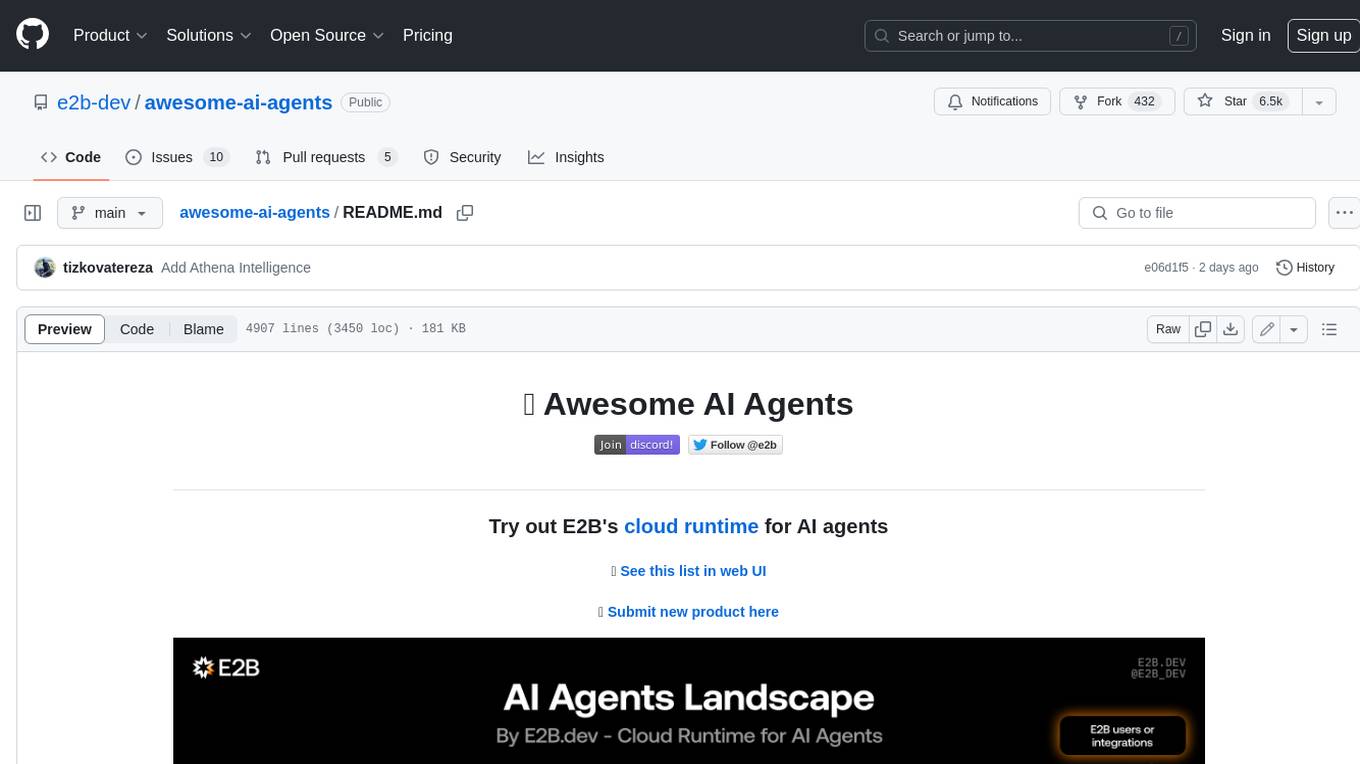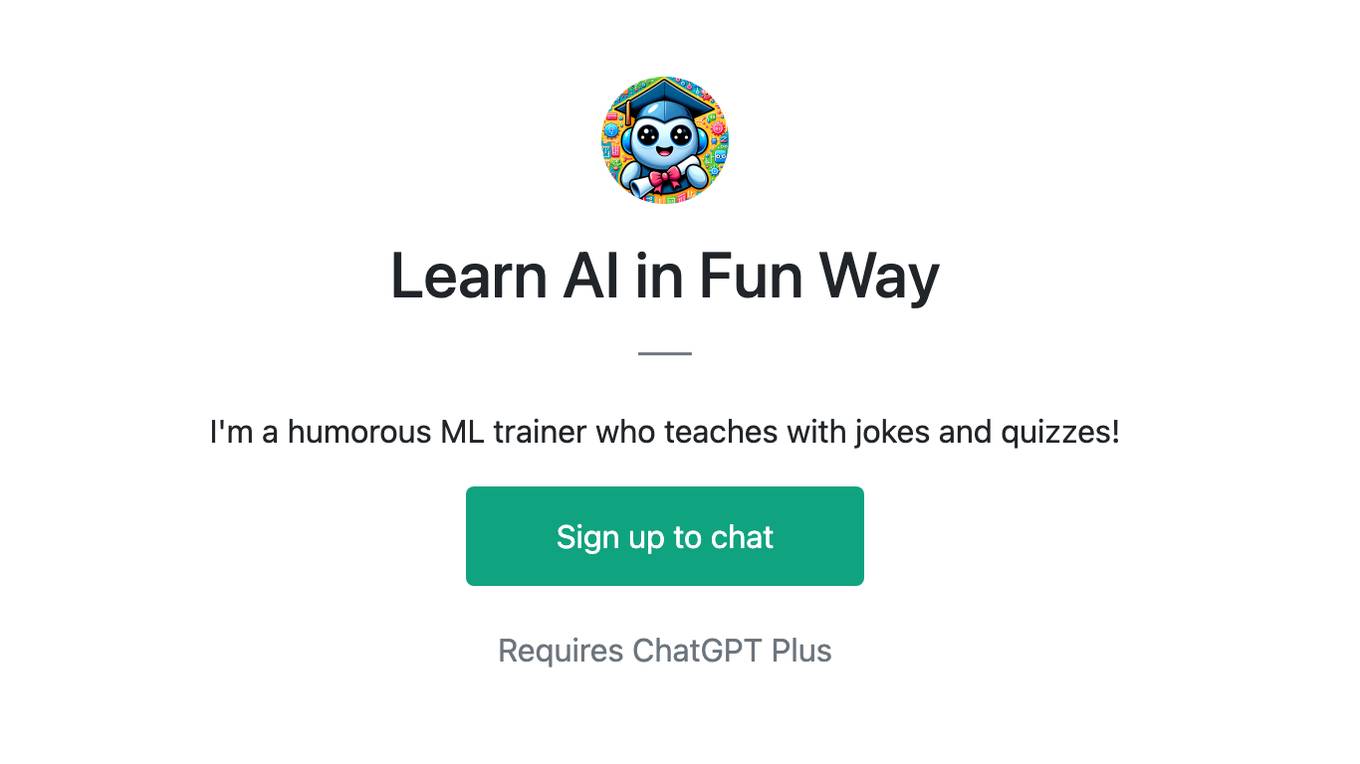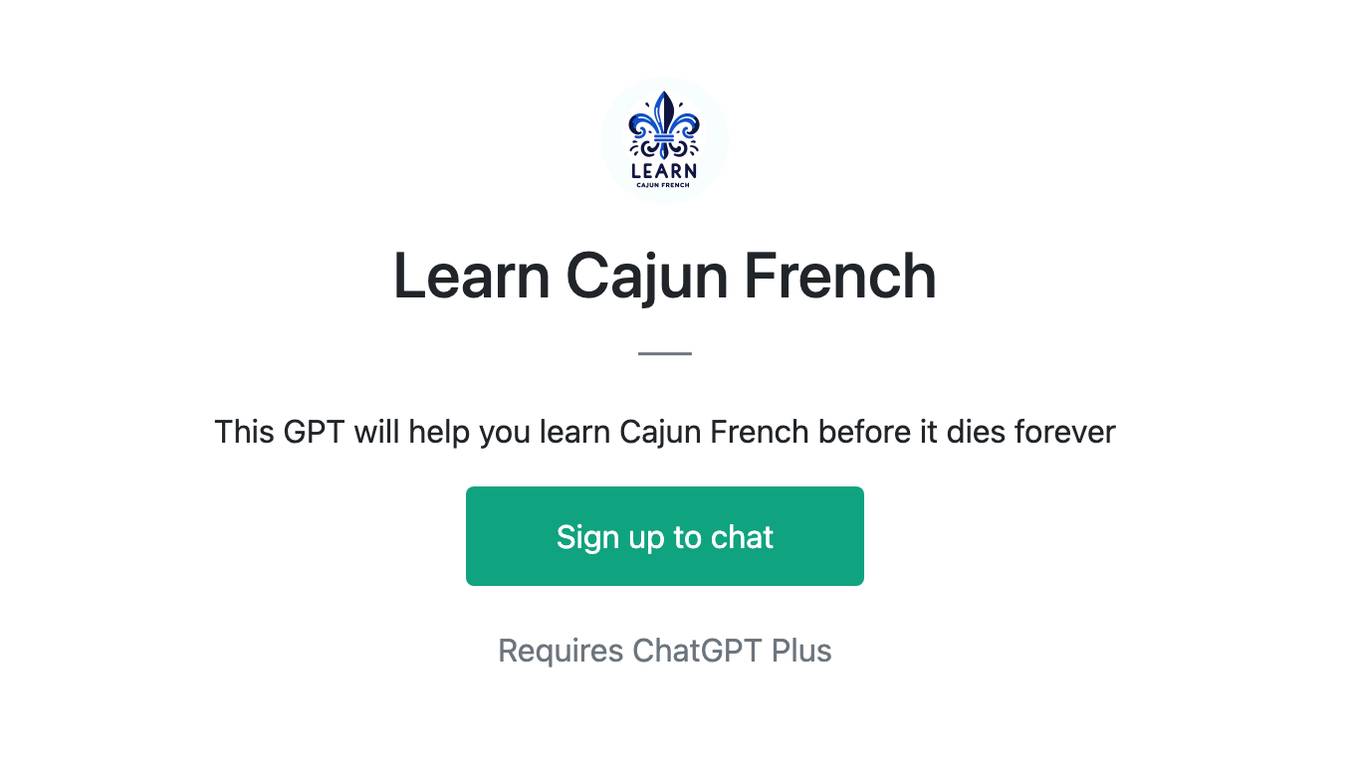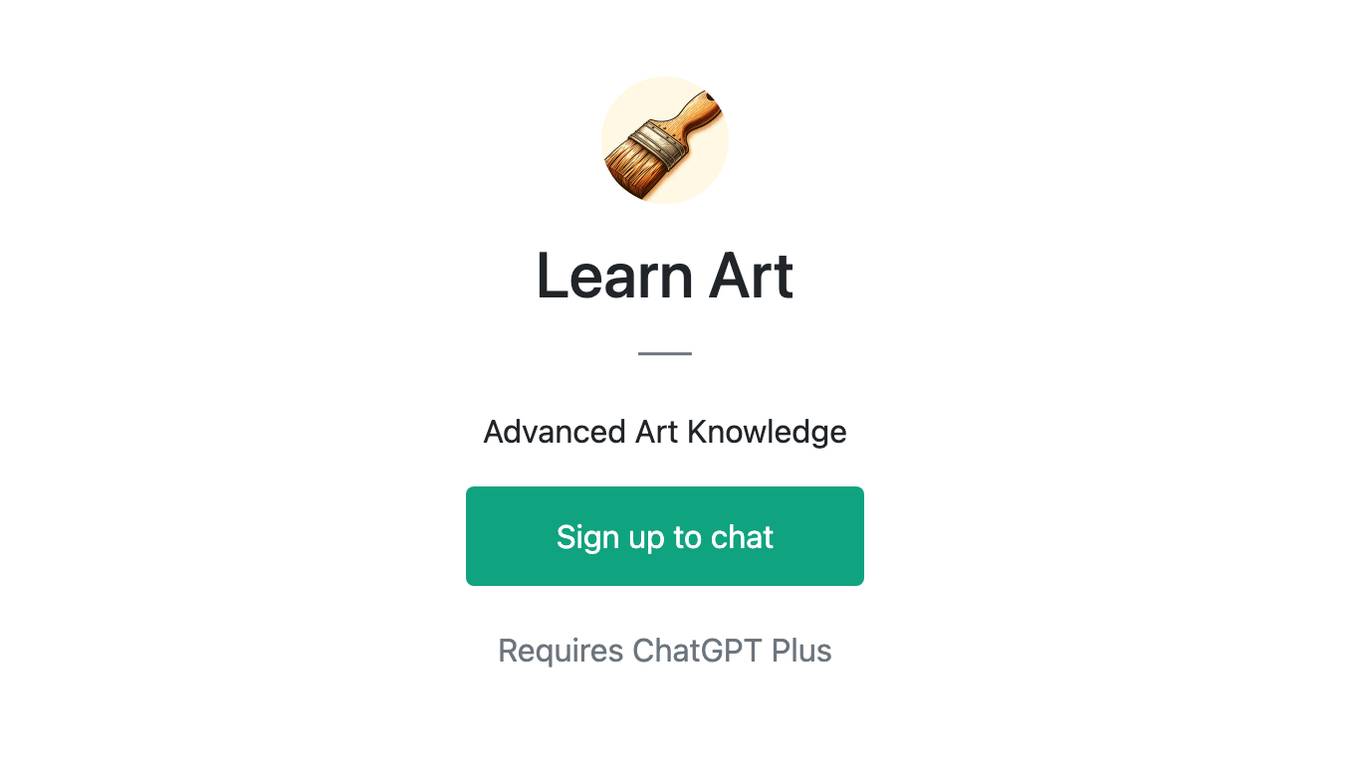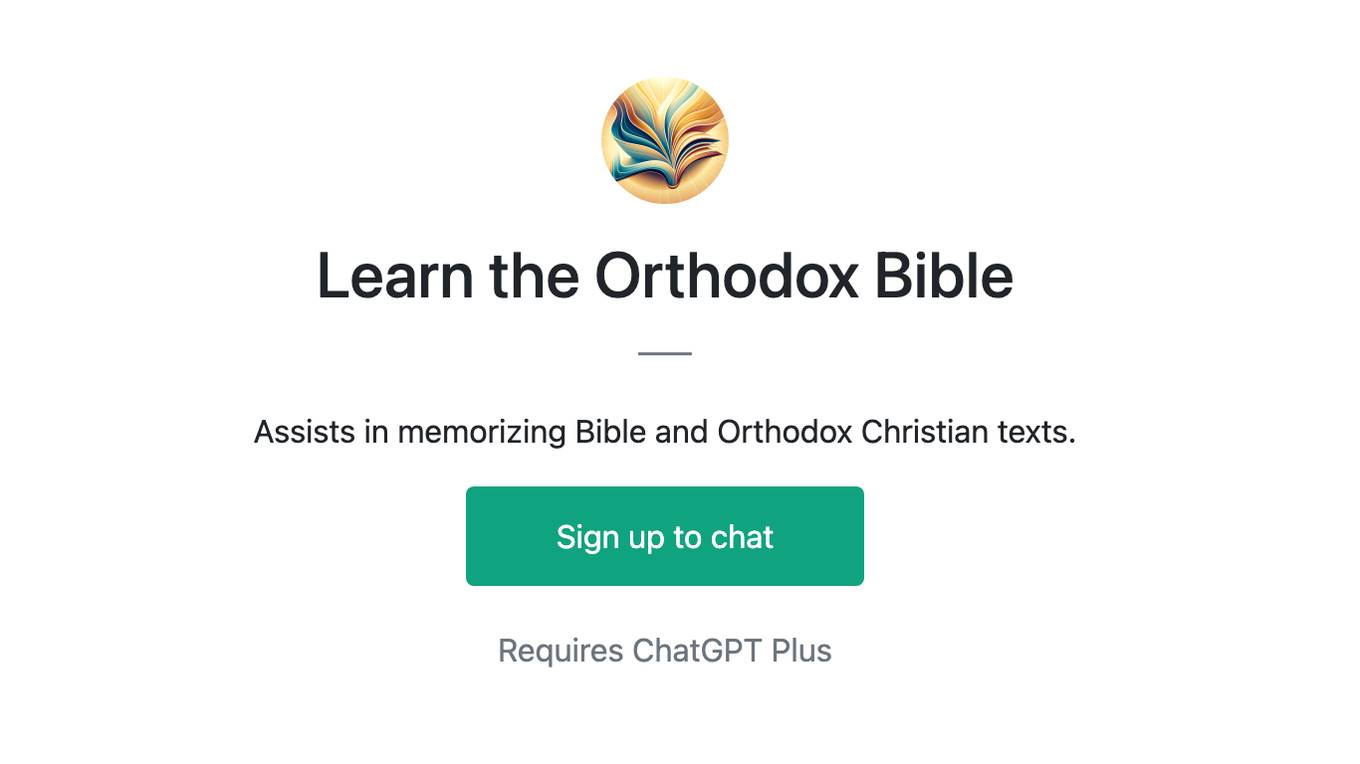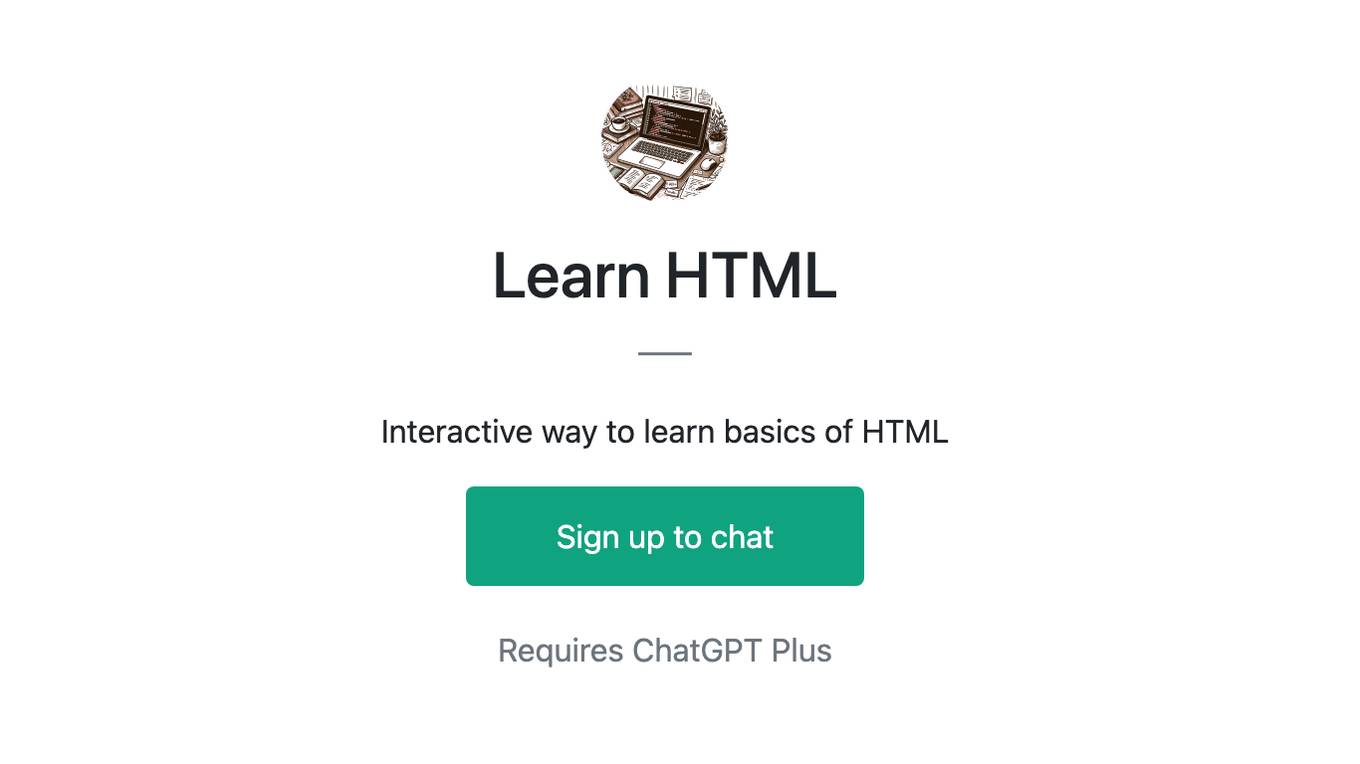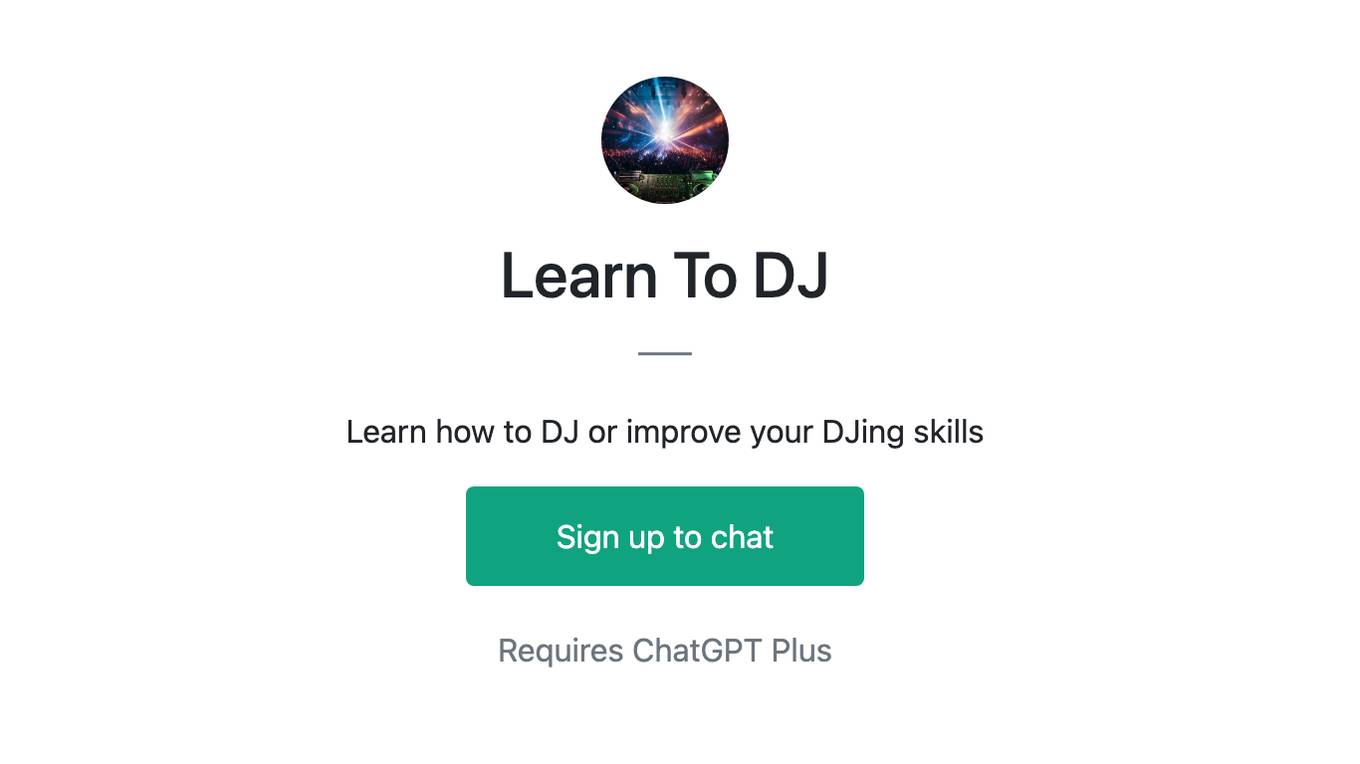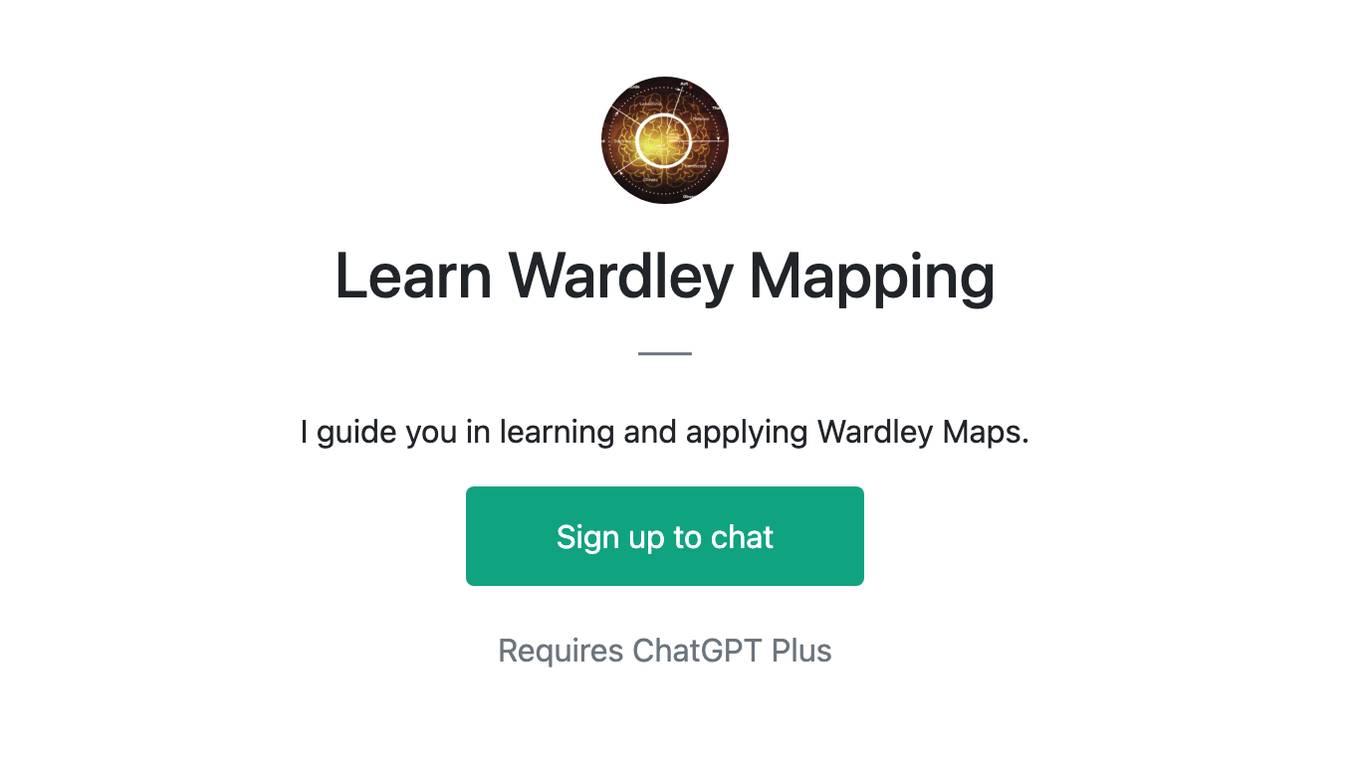Best AI tools for< learn collaboratively >
20 - AI tool Sites

DebateAI
DebateAI.org is an AI-powered platform designed to facilitate online debates and discussions. Users can engage in structured debates on various topics, leveraging AI algorithms to enhance the experience. The platform offers a user-friendly interface for participants to present arguments, counterpoints, and engage in constructive dialogue. DebateAI.org aims to promote critical thinking, communication skills, and collaborative learning through virtual debates.
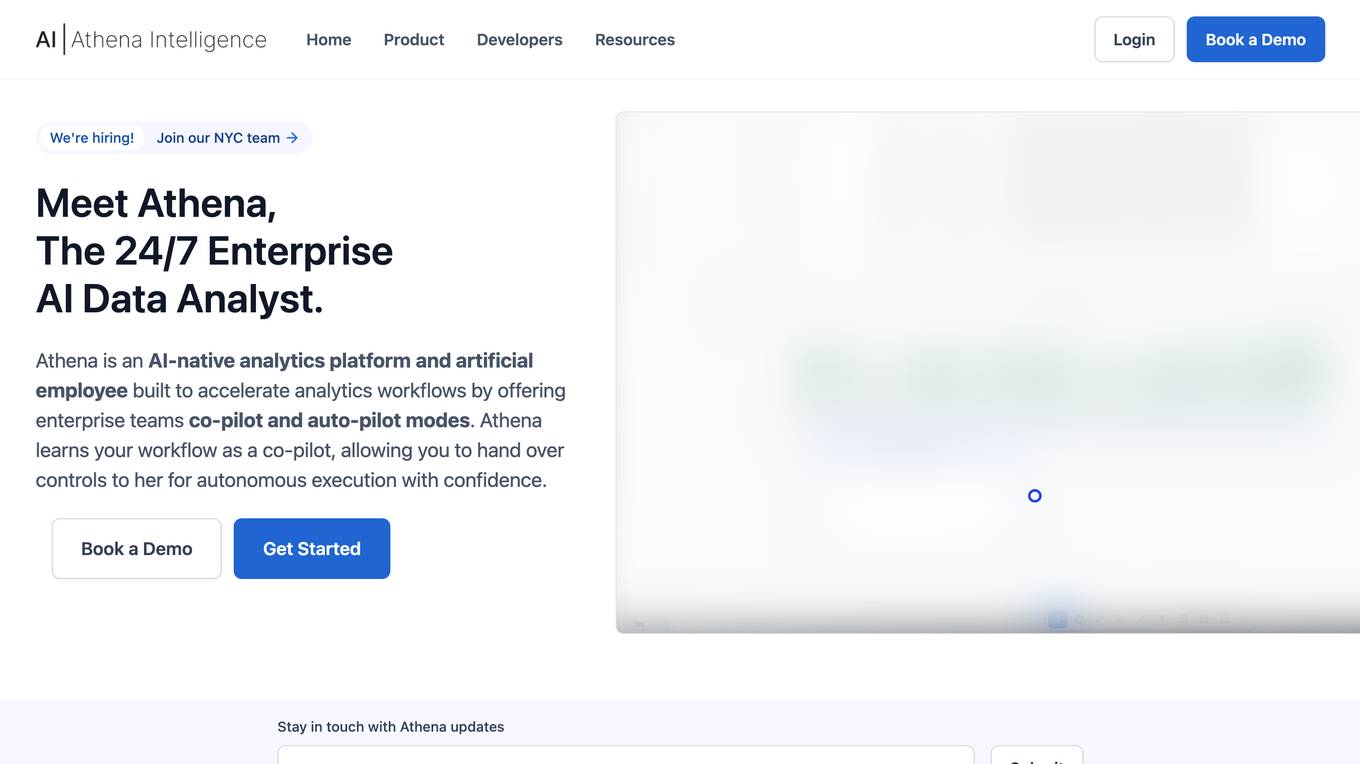
Athena Intelligence
Athena Intelligence is an AI-native analytics platform and artificial employee designed to accelerate analytics workflows by offering enterprise teams co-pilot and auto-pilot modes. Athena learns your workflow as a co-pilot, allowing you to hand over controls to her for autonomous execution with confidence. With Athena, everyone in your enterprise has access to a data analyst, and she doesn't take days off. Simple integration to your Enterprise Data Warehouse Chat with Athena to query data, generate visualizations, analyze enterprise data and codify workflows. Athena's AI learns from existing documentation, data and analyses, allowing teams to focus on creating new insights. Athena as a platform can be used collaboratively with co-workers or Athena, with over 100 users in the same report or whiteboard environment concurrently making edits. From simple queries and visualizations to complex industry specific workflows, Athena enables you with SQL and Python-based execution environments.
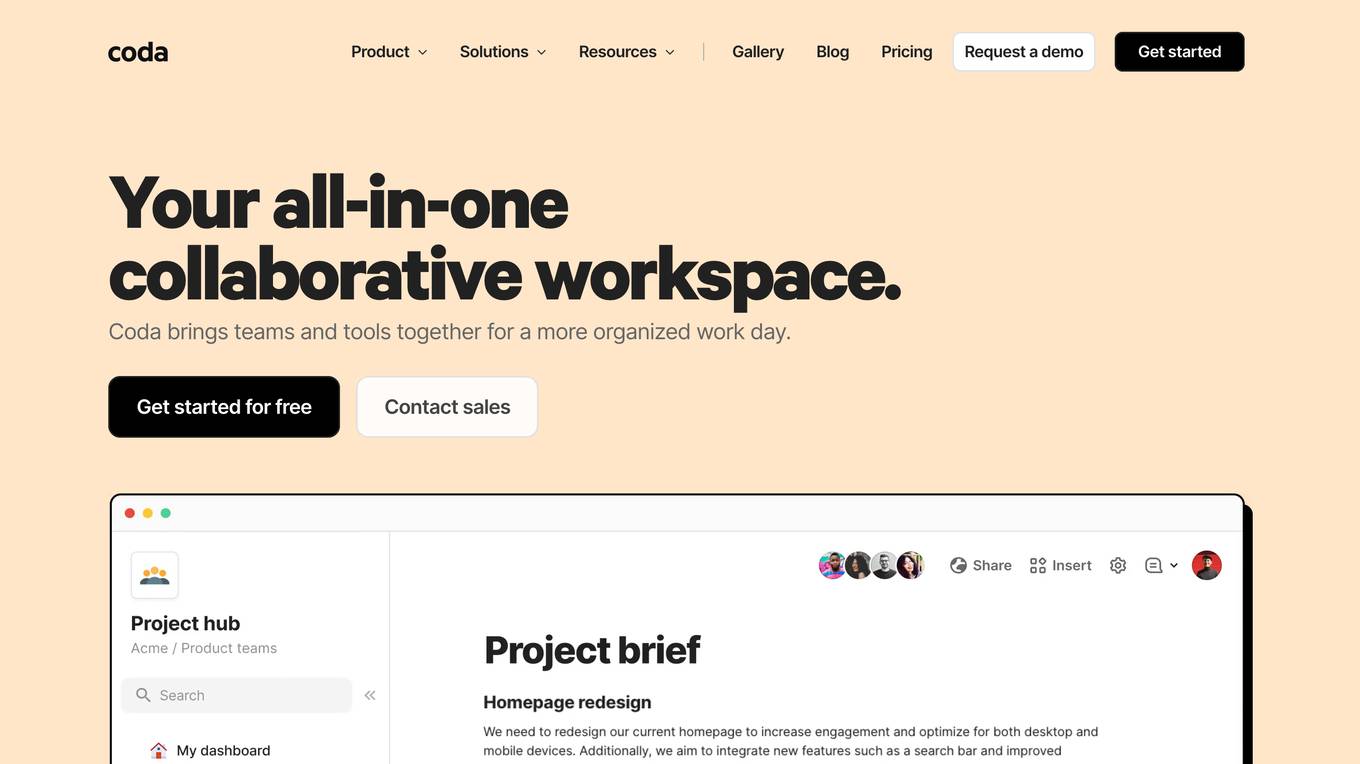
Coda
Coda is an all-in-one collaborative workspace that brings teams and tools together for a more organized work day. It is a cloud-based platform that allows users to create and share documents, spreadsheets, databases, and other types of content. Coda also includes a number of built-in features such as chat, video conferencing, and task management. Coda is designed to be easy to use and accessible to users of all skill levels.
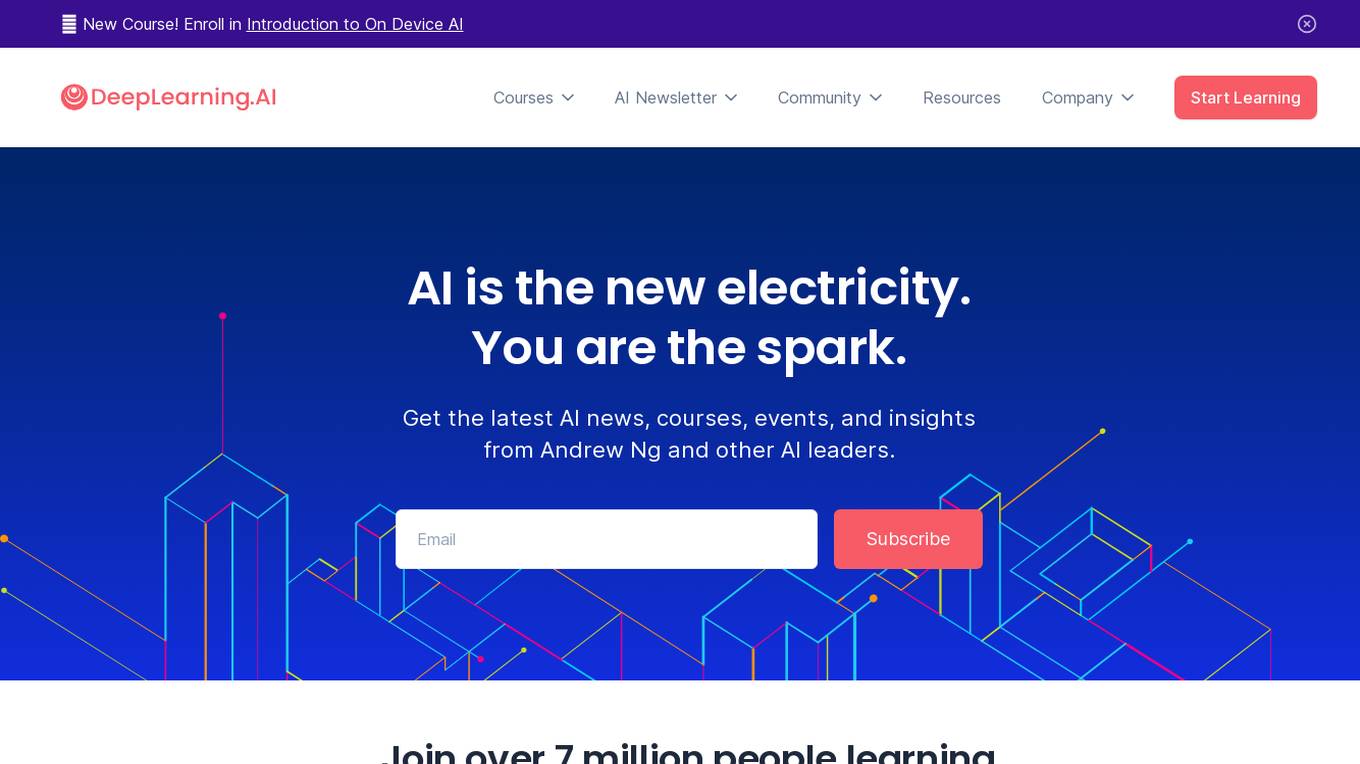
DeepLearning.AI
DeepLearning.AI is an AI education platform offering courses and resources to help individuals start or advance their careers in artificial intelligence. Founded by renowned AI expert Andrew Ng, the platform provides a wide range of courses, specializations, newsletters, and community forums to help learners build a strong foundation in machine learning and AI skills. Subscribers can access the latest AI news, insights, and events, and benefit from the expertise of industry leaders. With a focus on practical learning and real-world applications, DeepLearning.AI aims to empower individuals to harness the power of AI and contribute to the rapidly evolving field.
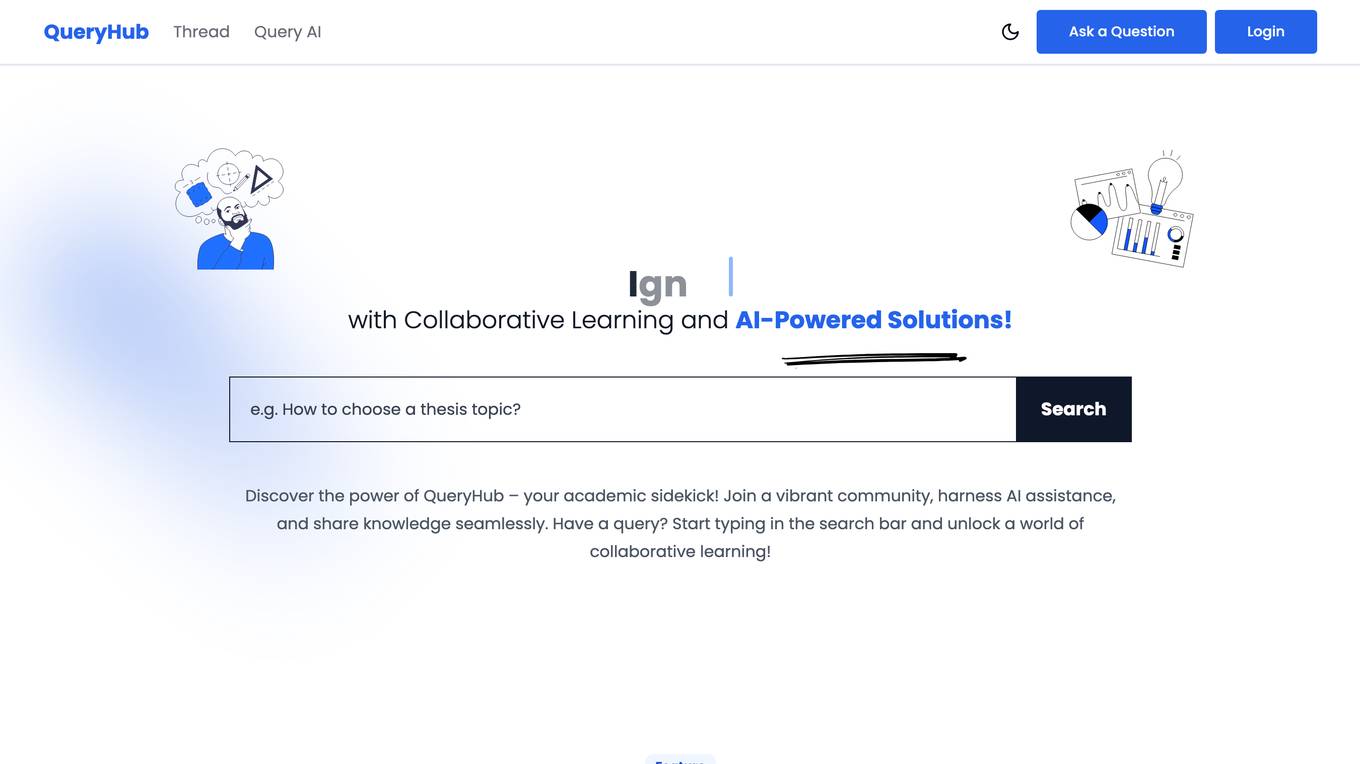
QueryHub
QueryHub is an academic platform that combines collaborative learning with AI-powered solutions. It offers an interactive forum, AI chatbot assistance, and a smart search capability to enhance the academic experience of students. Users can engage in discussions, get instant answers to their queries, and access a pool of shared resources to accelerate their learning. QueryHub's user-driven innovation and personalized learning experience make it a valuable tool for students seeking academic success.
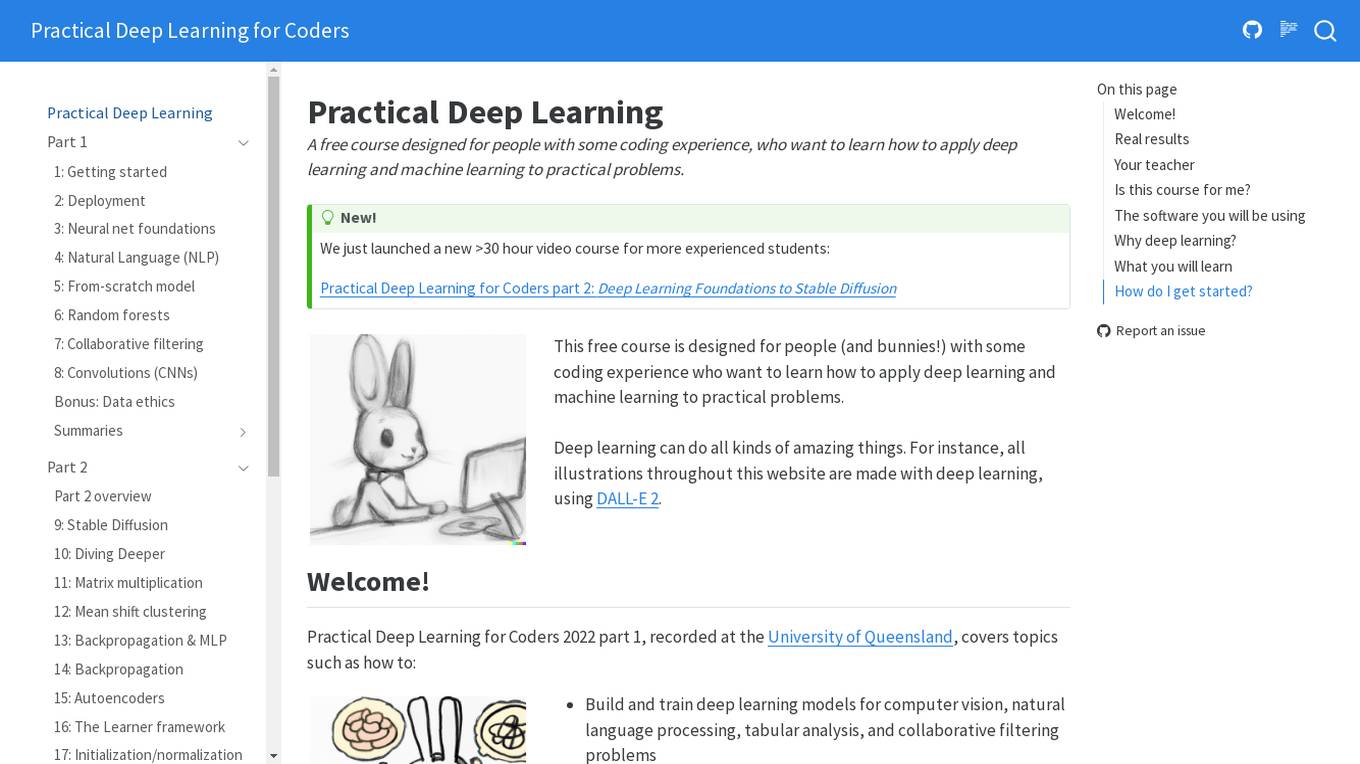
Practical Deep Learning for Coders
Practical Deep Learning for Coders is a free course designed for individuals with some coding experience who want to learn how to apply deep learning and machine learning to practical problems. The course covers topics such as building and training deep learning models for computer vision, natural language processing, tabular analysis, and collaborative filtering problems. It is based on a 5-star rated book and does not require any special hardware or software. The course is led by Jeremy Howard, a renowned expert in machine learning and the President and Chief Scientist of Kaggle.
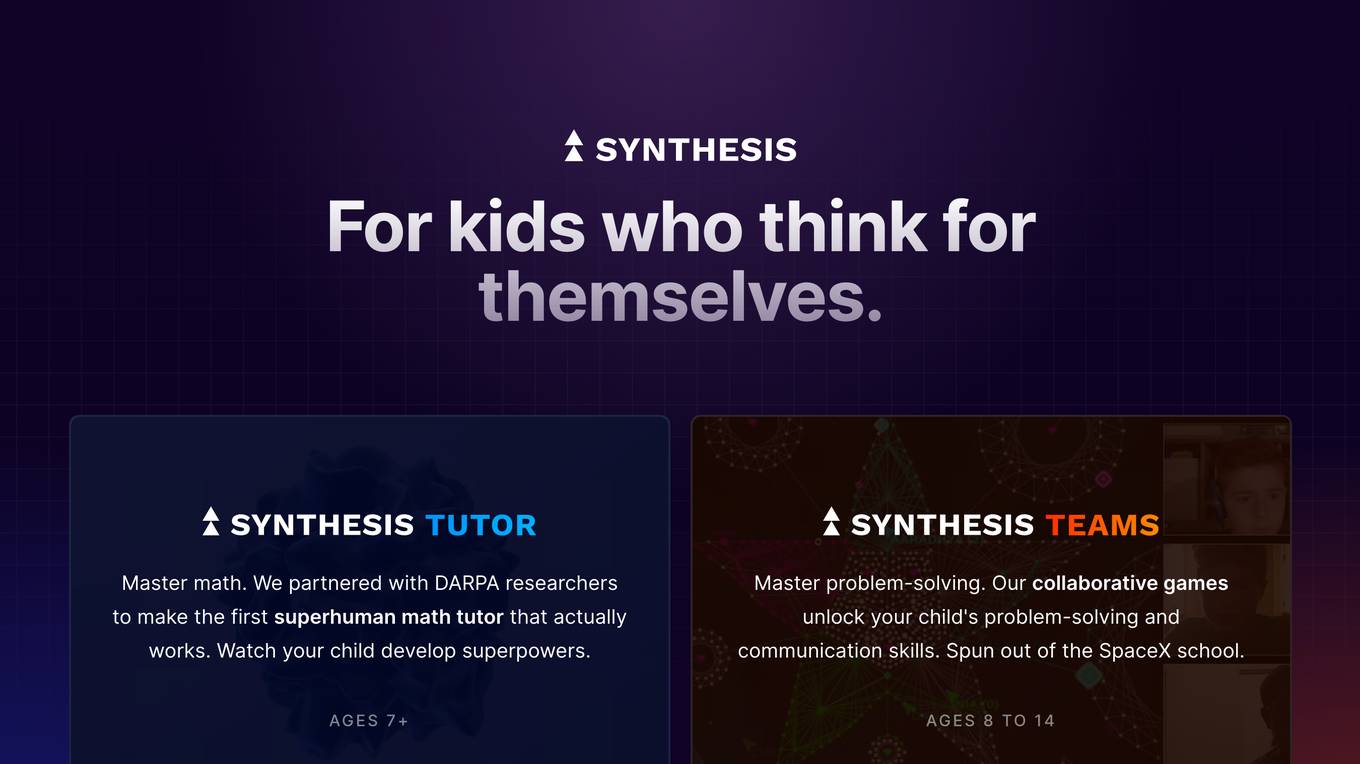
Synthesis
Synthesis is an innovative educational platform designed for kids who seek to develop critical thinking and problem-solving skills. Developed in collaboration with DARPA researchers and inspired by the SpaceX school, Synthesis offers a unique learning experience aimed at cultivating student voice, strategic thinking, and collaborative problem-solving. Founded by Josh Dahn, Synthesis provides a range of educational products and services to empower children aged 5 to 14 with superhuman math skills and problem-solving abilities. Join the worldwide community of Synthesis to unlock your child's potential and witness their growth in mastering complex challenges.
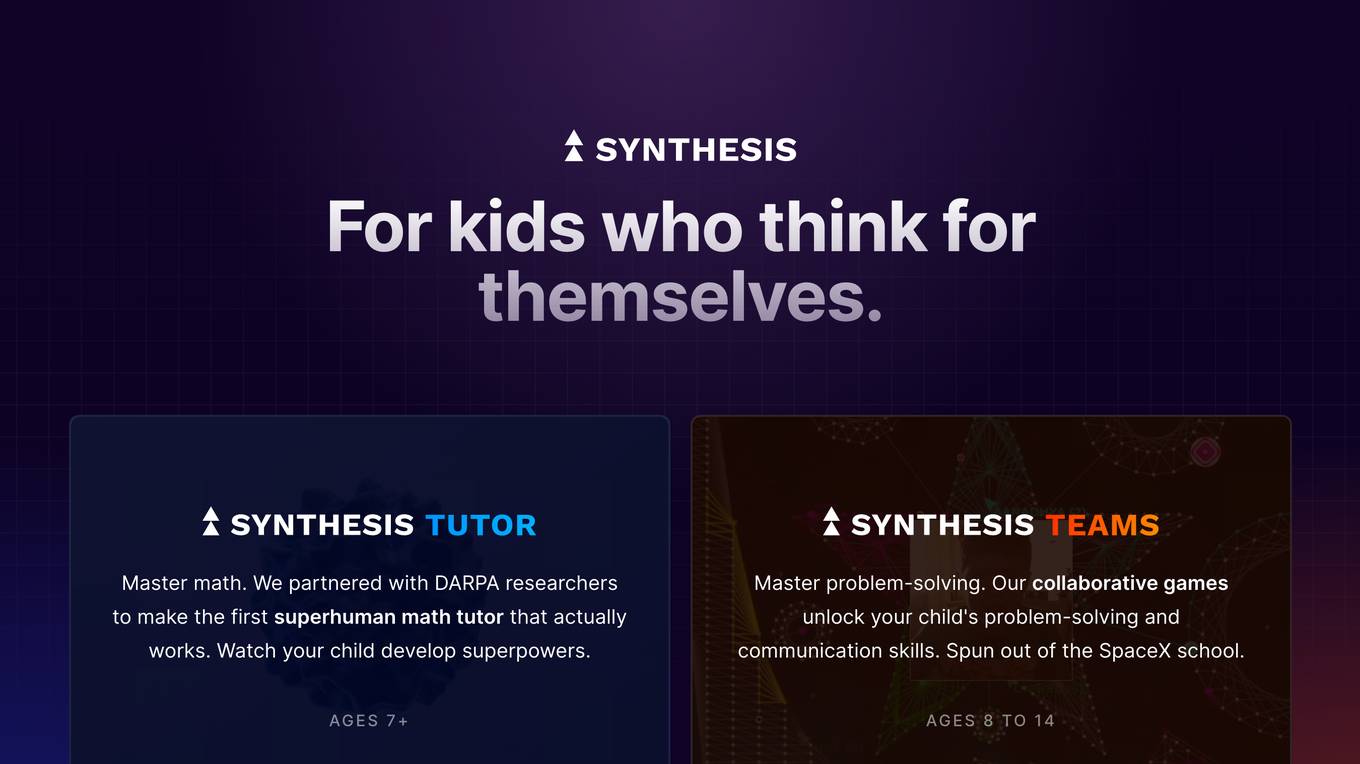
Synthesis
Synthesis is an innovative educational platform designed for children who seek to think independently and excel in math. Developed in collaboration with DARPA researchers, it offers a superhuman math tutor and collaborative games to enhance problem-solving and communication skills. Inspired by the SpaceX school, Synthesis aims to foster student voice, strategic thinking, and collaborative problem-solving. Founded by Josh Dahn, the platform provides cutting-edge learning experiences previously exclusive to SpaceX families, now available worldwide.

Pl@ntNet
Pl@ntNet is a citizen science project available as an application that helps you identify plants from your photos. It is a collaborative project that brings together scientists, naturalists, and citizens from all over the world to collect and share data on plant diversity. The app uses artificial intelligence to identify plants from photos, and the data collected is used to create a global database of plant diversity. Pl@ntNet is free to use and is available in over 20 languages.
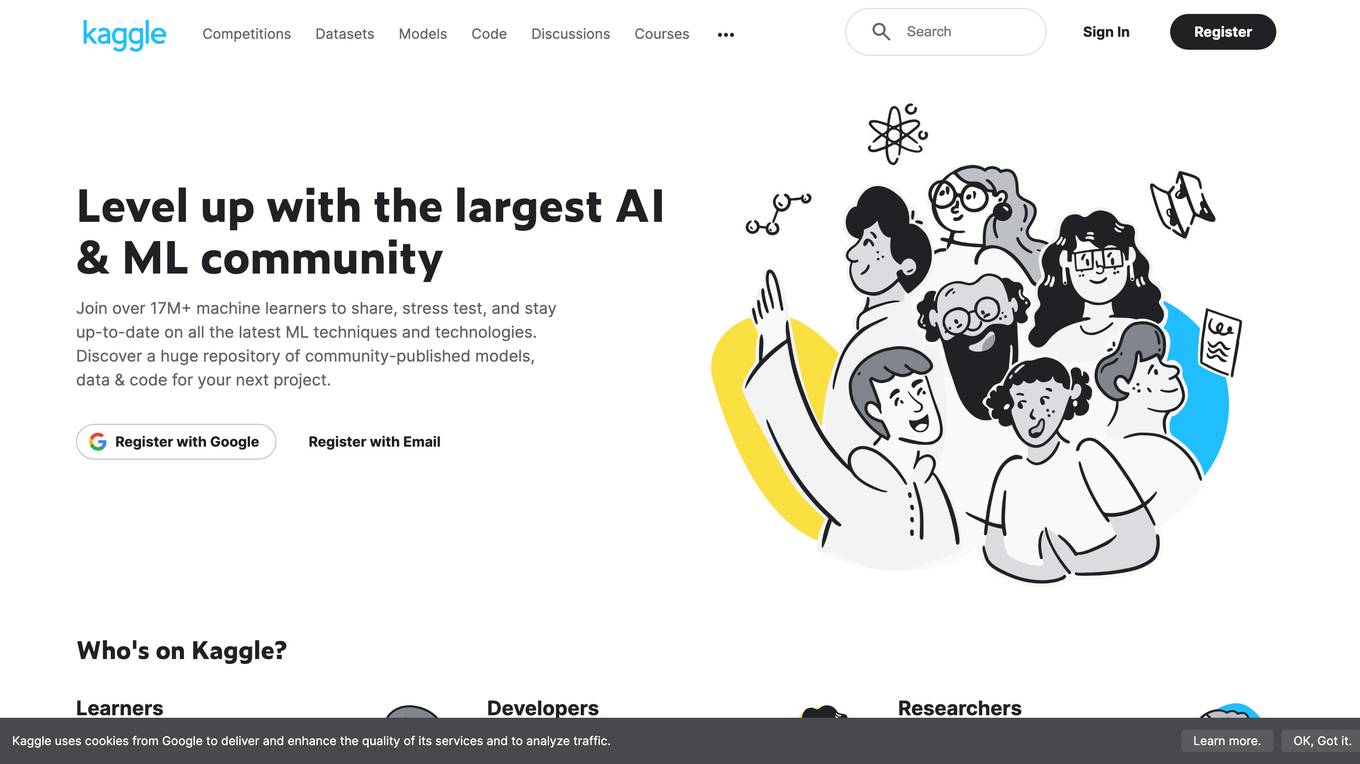
Kaggle
Kaggle is a platform that serves as a community hub for machine learning and data science enthusiasts. It provides a space for users to collaborate, share insights, and participate in competitions to solve real-world problems using data-driven approaches. With a vast repository of datasets, notebooks, and competitions, Kaggle offers a rich learning environment for both beginners and experienced professionals in the field of AI and data science.
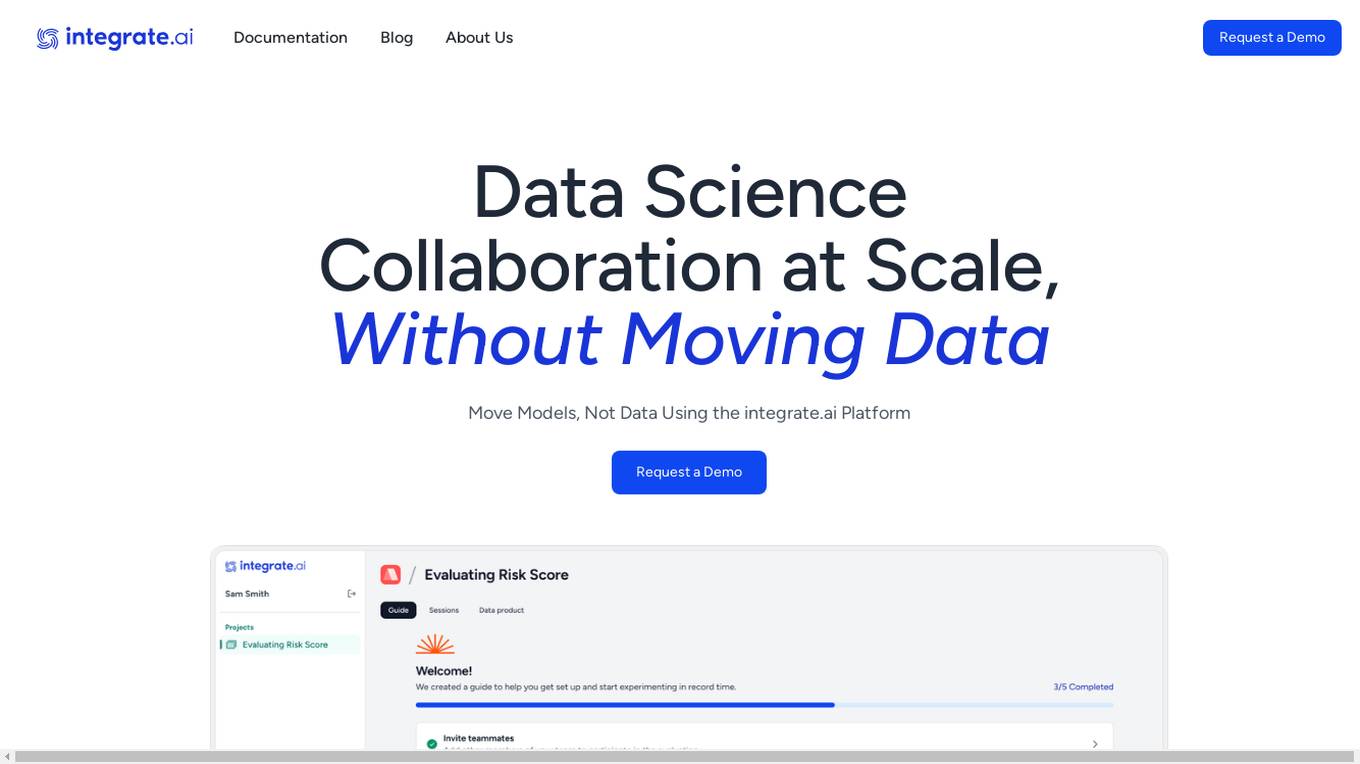
integrate.ai
integrate.ai is a platform that enables data and analytics providers to collaborate easily with enterprise data science teams without moving data. Powered by federated learning technology, the platform allows for efficient proof of concepts, data experimentation, infrastructure agnostic evaluations, collaborative data evaluations, and data governance controls. It supports various data science jobs such as match rate analysis, exploratory data analysis, correlation analysis, model performance analysis, feature importance & data influence, and model validation. The platform integrates with popular data science tools like Azure, Jupyter, Databricks, AWS, GCP, Snowflake, Pandas, PyTorch, MLflow, and scikit-learn.
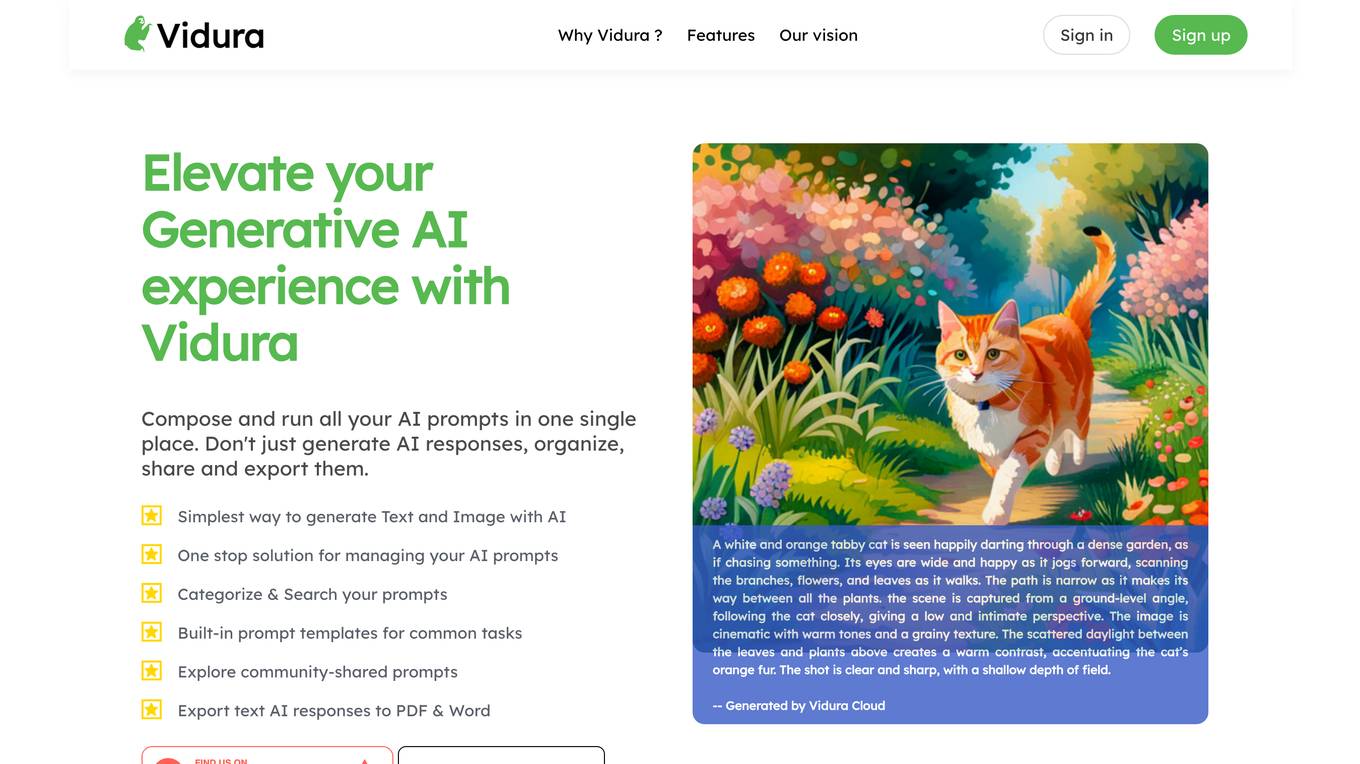
Vidura
Vidura is a prompt management system integrated with multiple AI systems, designed to enhance the Generative AI user experience. It allows users to compose, organize, share, and export AI prompts efficiently. With features like prompt categorization, quick templates, content generation, audit history, dynamic prompting, and community exploration, Vidura aims to simplify the process of interacting with AI models. The platform fosters a collaborative environment for users to share prompts and learn from each other, ultimately making Generative AI more accessible and user-friendly.
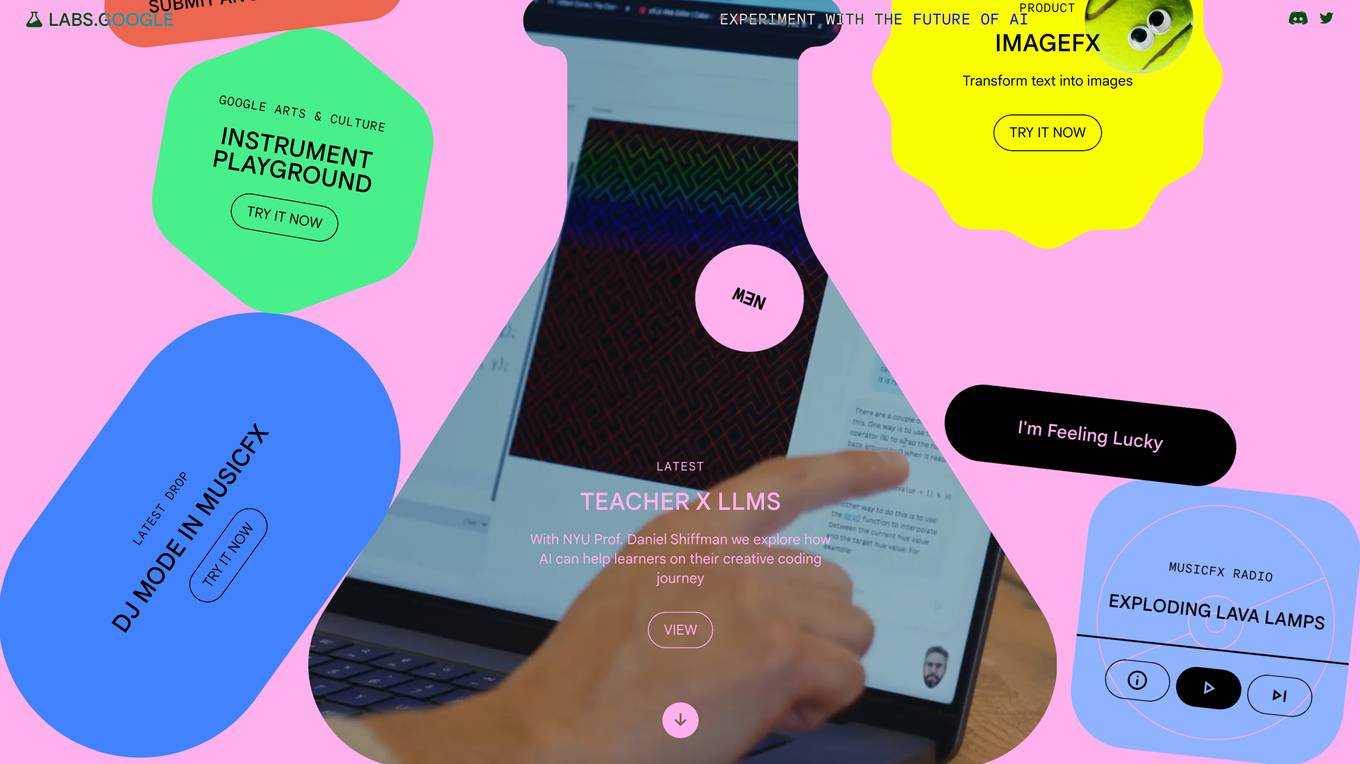
Google Labs
Google Labs is a website that showcases experimental AI tools and technology developed by Google. These tools are designed to help users explore the potential of AI in various fields, including creativity, productivity, and education. Some of the featured tools include: - **LABS.GOOGLE**: A platform for experimenting with the future of AI, including tools for creating images from text, generating music, and writing scripts for home automation. - **NotebookLM**: A personalized AI collaborator designed to help users with their thinking and writing. - **Say What You See**: A tool that helps users learn the art of prompting and improving their image-reading skills. - **Help Me Script**: A tool that turns text into home automation scripts for Google Home. - **ImageFX**: A tool that transforms text into images, allowing users to explore endless possibilities. - **Gen AI in Chrome**: A tool that creates themes with AI, organizes tabs, and helps users write more confidently on the web. - **MusicFX**: A tool that describes a musical idea and brings it to life. - **Duet AI**: A tool that helps users create, write, visualize, and organize in new ways with collaborative AI tools in Google Workspace. - **TextFX**: A tool that supercharges the writing process with AI-powered language tools.
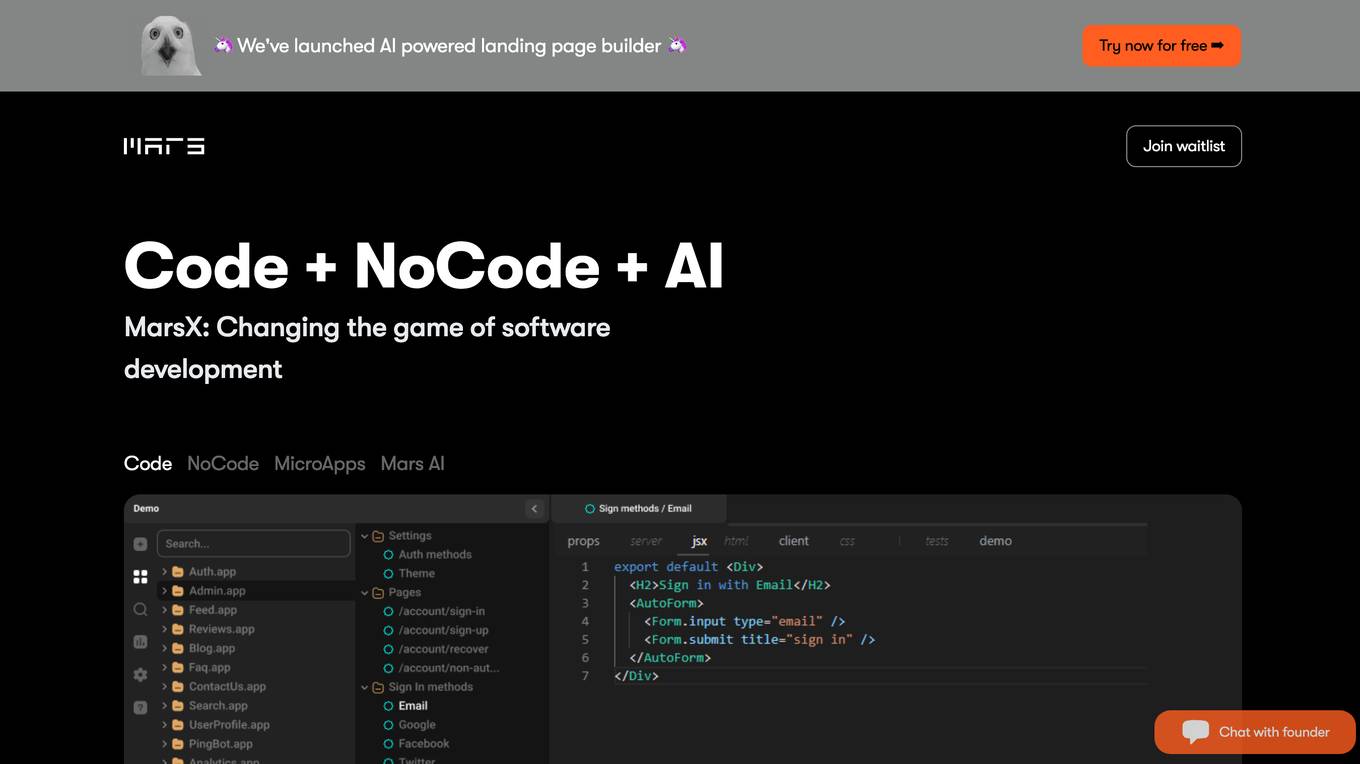
MarsX
MarsX is a revolutionary dev tool that seamlessly integrates AI, NoCode, Code, and MicroApps, empowering developers to create innovative software solutions with unprecedented speed and efficiency. At its core, MarsX offers a comprehensive suite of features that cater to the diverse needs of developers, from AI-powered landing page builders to a vast Micro AppStore brimming with ready-to-use Micro-Apps. These Micro-Apps, meticulously crafted by developers worldwide, provide instant access to a plethora of functionalities, enabling developers to rapidly assemble complex applications without the need for extensive coding. MarsX's commitment to innovation extends beyond its core offerings, as evidenced by its continuous development of cutting-edge tools such as AI website builders and AI-powered UI generators. These tools leverage the transformative power of AI to streamline the development process, allowing developers to focus on their creativity and strategic decision-making. By harnessing the collective knowledge and expertise of a global developer community, MarsX fosters a collaborative environment where developers can share their creations, learn from each other, and contribute to the ever-expanding ecosystem of Micro-Apps. MarsX's mission is to democratize software development, making it accessible to individuals and teams of all skill levels. With its intuitive interface, comprehensive documentation, and a supportive community, MarsX empowers developers to bring their ideas to life, transforming complex software development into an accessible and enjoyable experience.
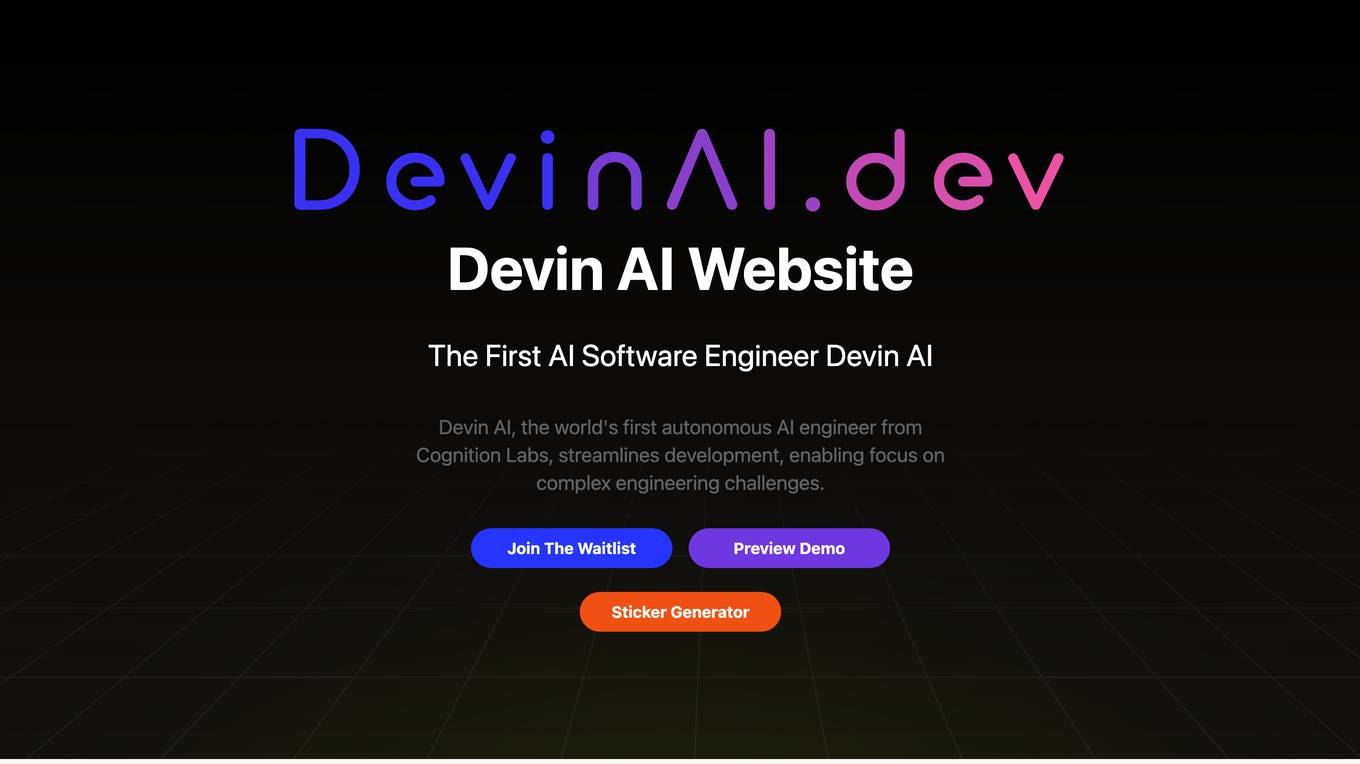
Devin AI
Devin AI, developed by Cognition Labs, is the world's first fully autonomous AI software engineer. It streamlines software development by handling complex tasks, allowing engineers to focus on more challenging aspects. Devin AI possesses advanced programming skills, can manage complex tasks, understands and learns contextually, integrates with developer tools, and offers collaborative features. It can build and deploy applications, detect and fix bugs, contribute to open-source projects, train AI models, and handle GitHub repositories. Devin AI has demonstrated strong performance in issue resolution, surpassing previous AI models. It is currently in early access, with plans for future enhancements and integration with various development tools and platforms.
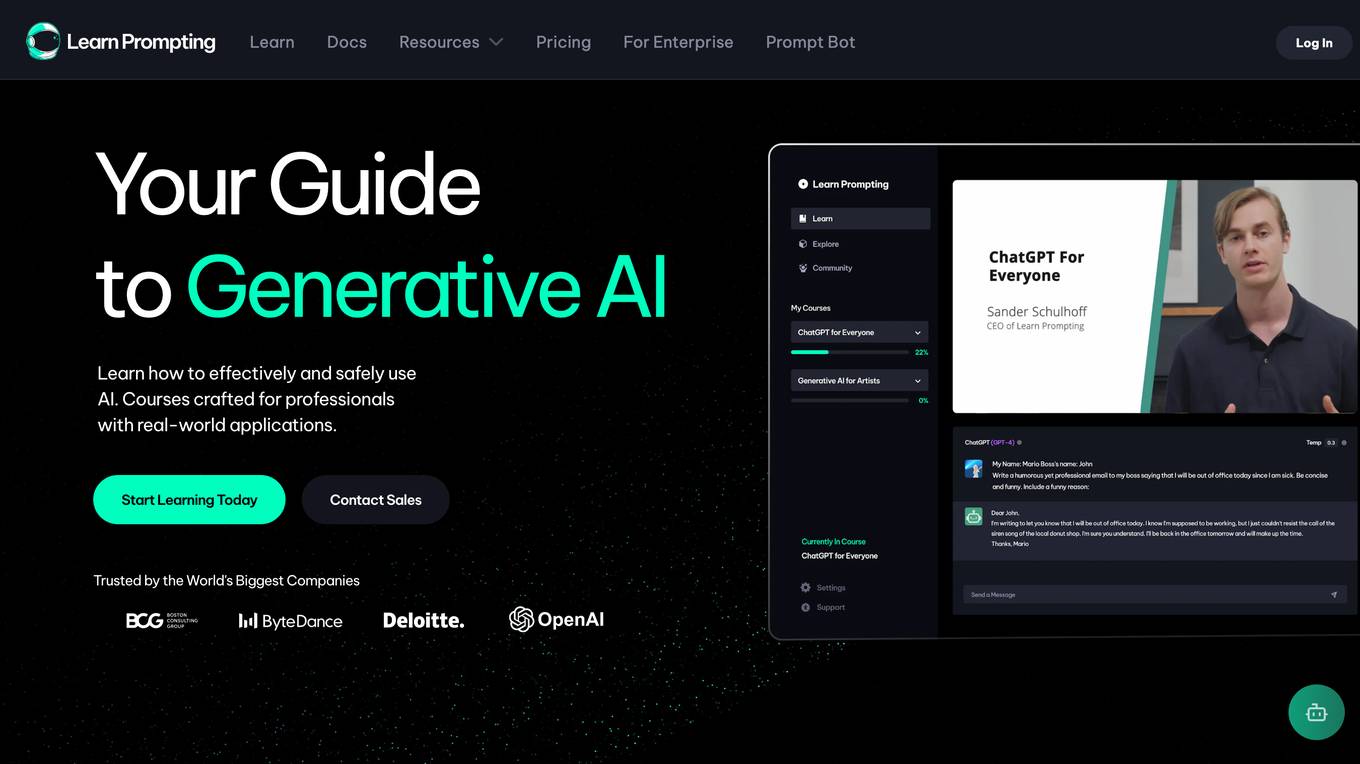
Learn Prompting
Learn Prompting is a free, open-source course that teaches you how to communicate with AI effectively and safely. It covers everything from the basics of AI communication to more advanced techniques, such as prompt engineering and gradient-based techniques. Learn Prompting also has a large Discord community of people who are interested in learning how to prompt. This makes it a great resource for anyone who wants to learn more about AI and how to use it effectively.
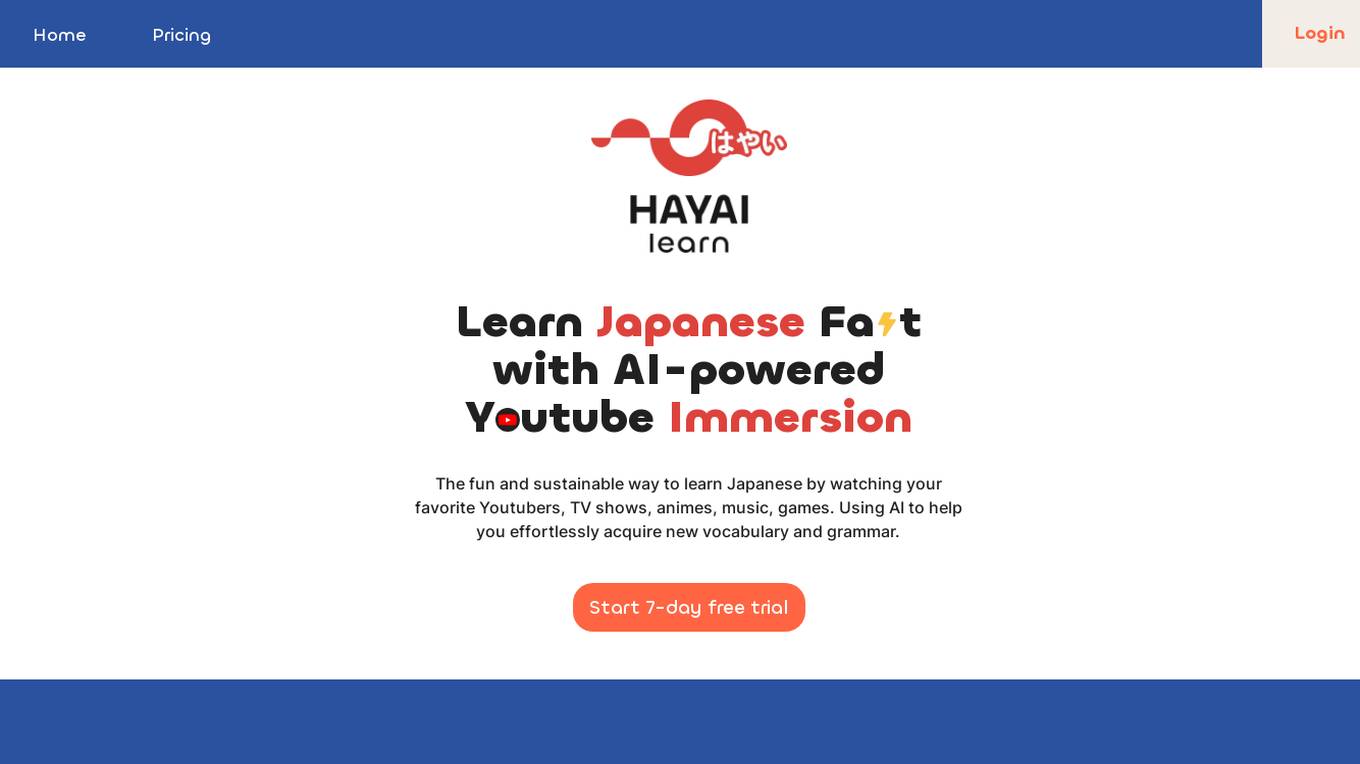
Hayai Learn
Hayai Learn is an AI-powered platform designed to help users learn Japanese quickly and effectively by immersing them in Japanese content such as YouTube videos. The platform utilizes AI technology to assist users in acquiring new vocabulary and grammar effortlessly. By offering features like word learning from subtitles, providing relevant word meanings, offering video examples for better memory association, and assisting with sentence mining, Hayai Learn aims to revolutionize the way Japanese is learned by making it fun and engaging.
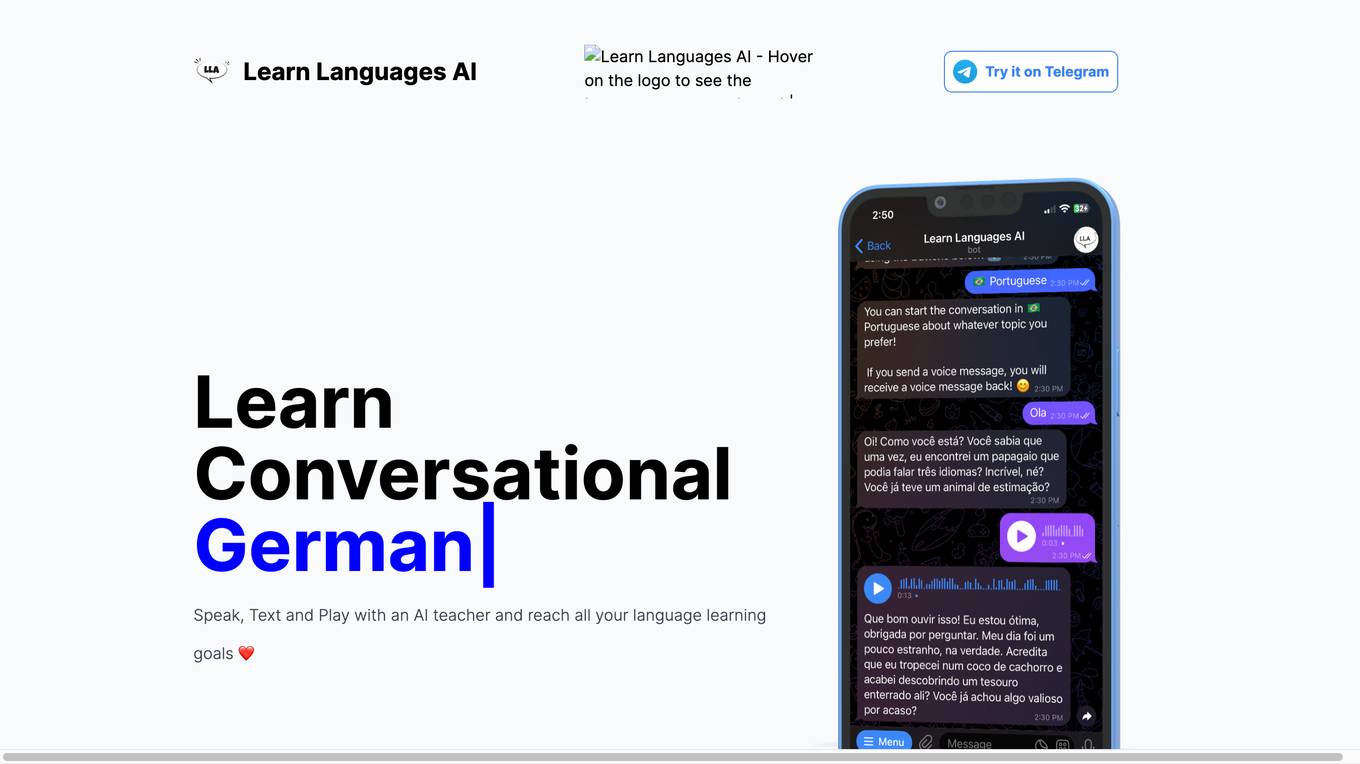
Learn Languages AI
Learn Languages AI is a language learning tool that uses artificial intelligence to help users learn new languages. The tool is built on Telegram and allows users to speak, text, and play with an AI teacher. Learn Languages AI is designed to help users reach all of their language learning goals. The tool is free to use and does not require an account.
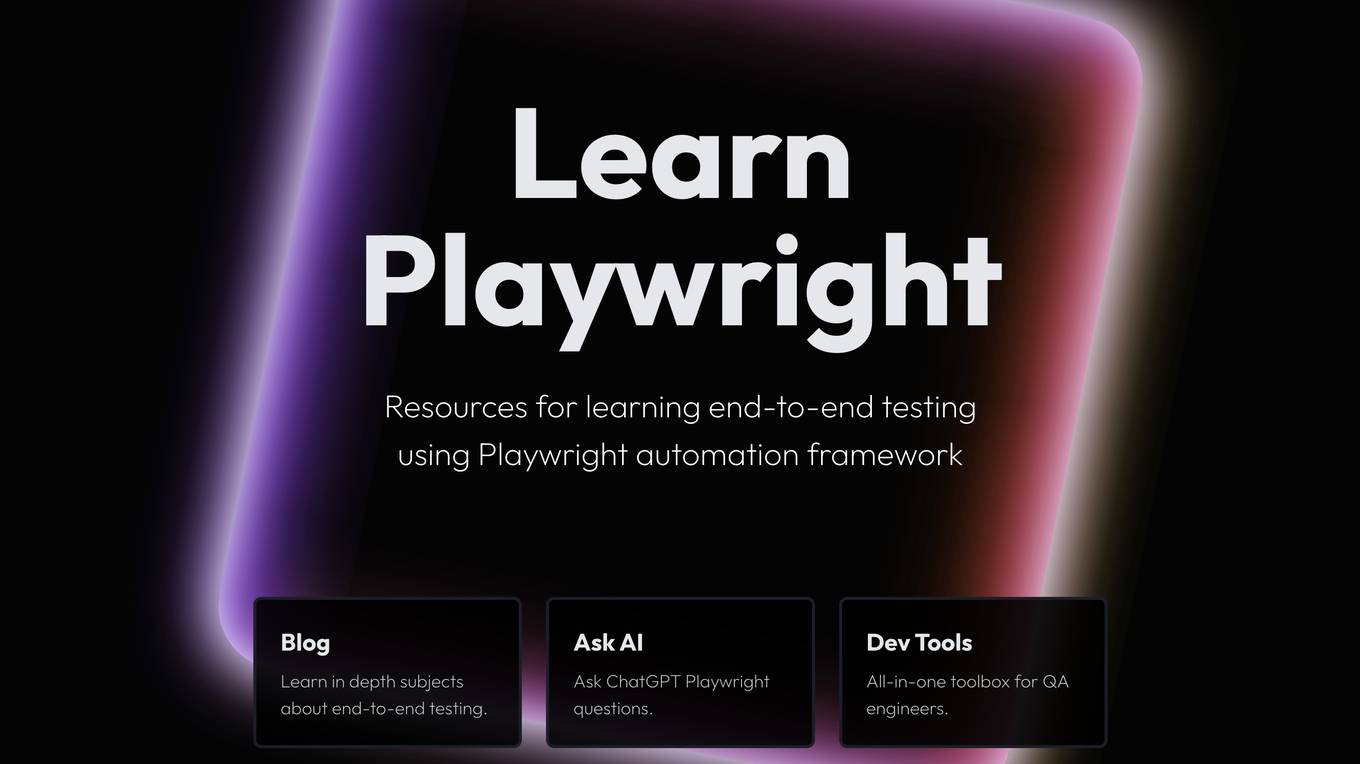
Learn Playwright
Learn Playwright is a comprehensive platform offering resources for learning end-to-end testing using the Playwright automation framework. It includes a blog with in-depth subjects about end-to-end testing, an 'Ask AI' feature for getting Playwright-related questions answered, and a collection of dev tools in an all-in-one toolbox for QA engineers. The platform also provides handpicked QA and Automation job opportunities, answers to common questions about Playwright, an archive of Discord Forum posts, tutorials, conference talks, and release videos, a browser extension with a GUI for generating Playwright locators, and a QA Wiki with definitions of common end-to-end testing terms. Users can quickly access all tools by using Ctrl + k + 'Tools'.
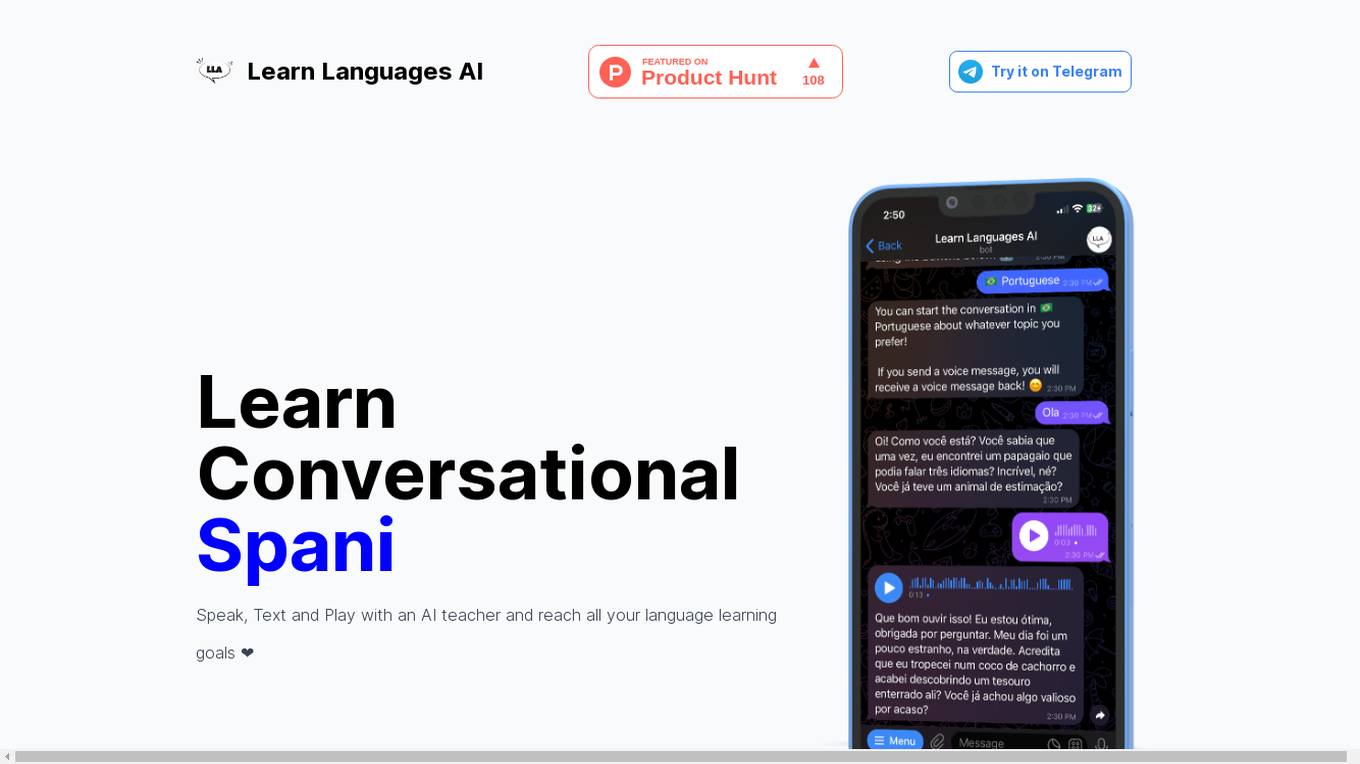
Learn Languages AI
Learn Languages AI is an AI-powered language learning application that allows users to practice conversational language skills with an AI teacher. Users can speak, text, and play with the AI teacher to achieve their language learning goals. The application is built on Telegram platform, offering a seamless and user-friendly experience. With no account required, users can start learning immediately. Join over 1000 happy users from various countries who are learning languages such as German, Polish, Spanish, Italian, French, Dutch, Brazilian Portuguese, Indian, and Chinese. Created by @franzstupar, the developer of the renowned #1 AI Cover Letter Generator.
20 - Open Source AI Tools
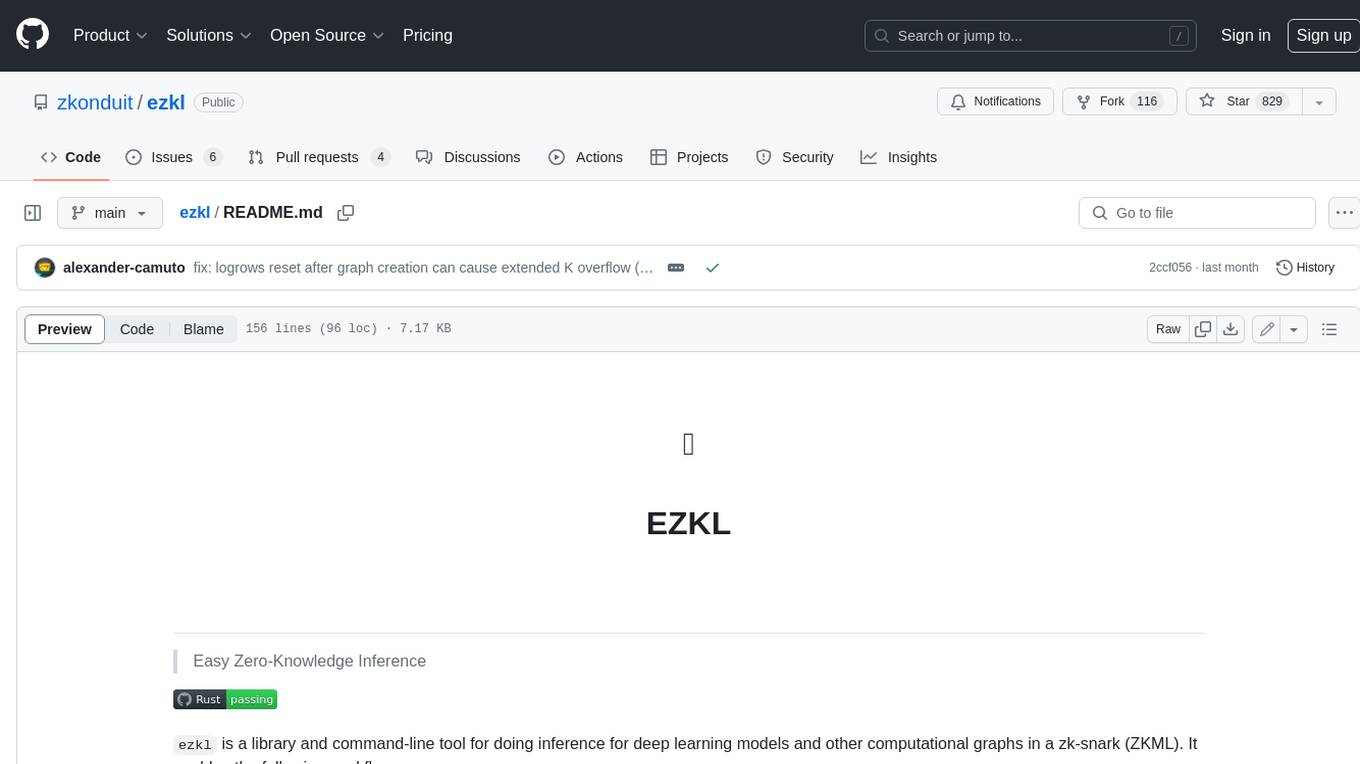
ezkl
EZKL is a library and command-line tool for doing inference for deep learning models and other computational graphs in a zk-snark (ZKML). It enables the following workflow: 1. Define a computational graph, for instance a neural network (but really any arbitrary set of operations), as you would normally in pytorch or tensorflow. 2. Export the final graph of operations as an .onnx file and some sample inputs to a .json file. 3. Point ezkl to the .onnx and .json files to generate a ZK-SNARK circuit with which you can prove statements such as: > "I ran this publicly available neural network on some private data and it produced this output" > "I ran my private neural network on some public data and it produced this output" > "I correctly ran this publicly available neural network on some public data and it produced this output" In the backend we use the collaboratively-developed Halo2 as a proof system. The generated proofs can then be verified with much less computational resources, including on-chain (with the Ethereum Virtual Machine), in a browser, or on a device.
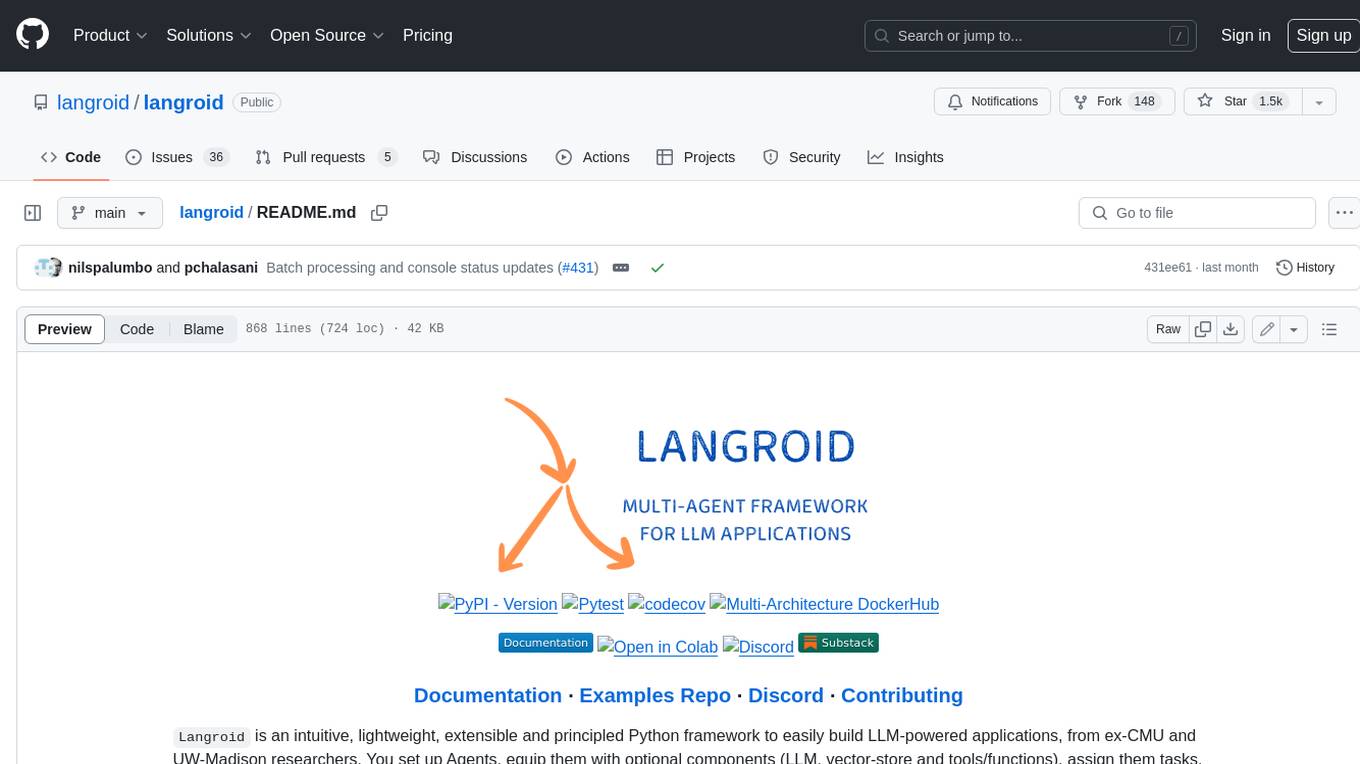
langroid
Langroid is a Python framework that makes it easy to build LLM-powered applications. It uses a multi-agent paradigm inspired by the Actor Framework, where you set up Agents, equip them with optional components (LLM, vector-store and tools/functions), assign them tasks, and have them collaboratively solve a problem by exchanging messages. Langroid is a fresh take on LLM app-development, where considerable thought has gone into simplifying the developer experience; it does not use Langchain.

mlflow
MLflow is a platform to streamline machine learning development, including tracking experiments, packaging code into reproducible runs, and sharing and deploying models. MLflow offers a set of lightweight APIs that can be used with any existing machine learning application or library (TensorFlow, PyTorch, XGBoost, etc), wherever you currently run ML code (e.g. in notebooks, standalone applications or the cloud). MLflow's current components are:
* `MLflow Tracking
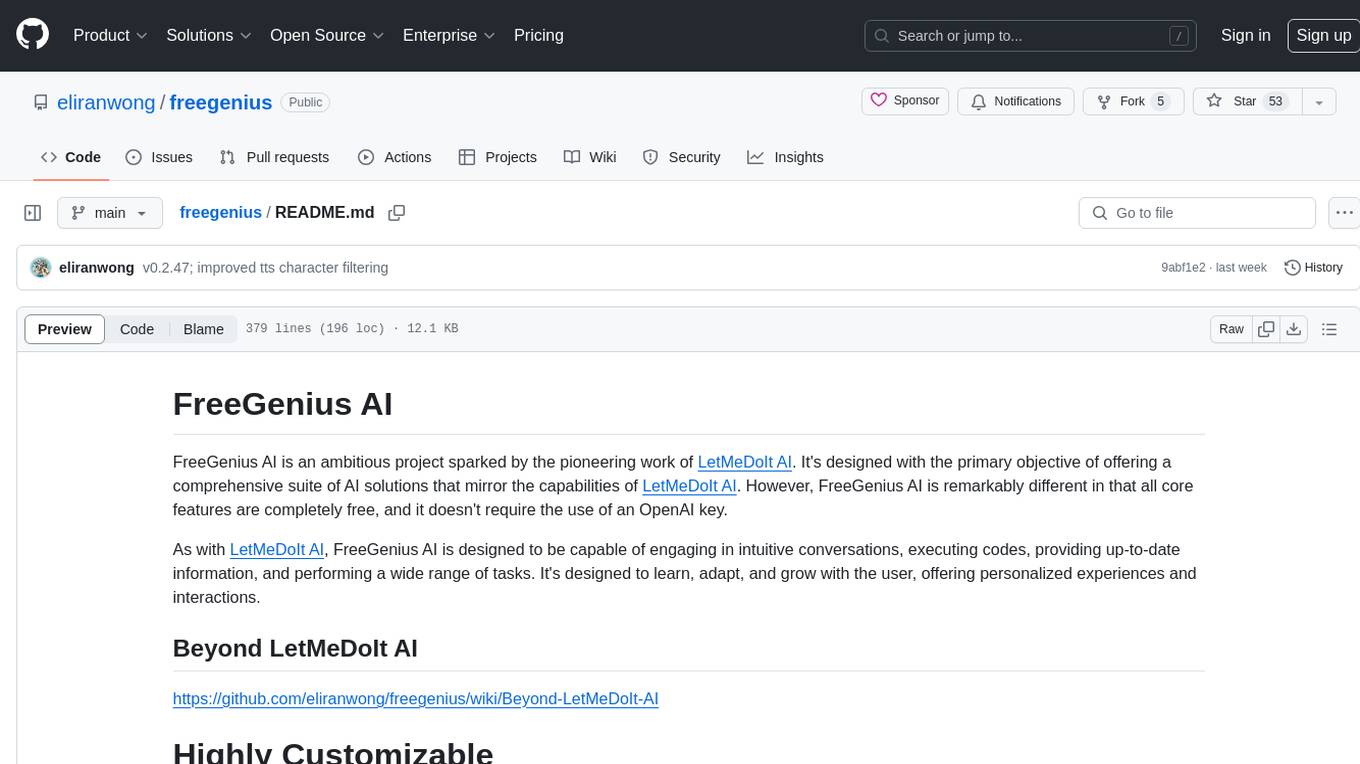
freegenius
FreeGenius AI is an ambitious project offering a comprehensive suite of AI solutions that mirror the capabilities of LetMeDoIt AI. It is designed to engage in intuitive conversations, execute codes, provide up-to-date information, and perform various tasks. The tool is free, customizable, and provides access to real-time data and device information. It aims to support offline and online backends, open-source large language models, and optional API keys. Users can use FreeGenius AI for tasks like generating tweets, analyzing audio, searching financial data, checking weather, and creating maps.
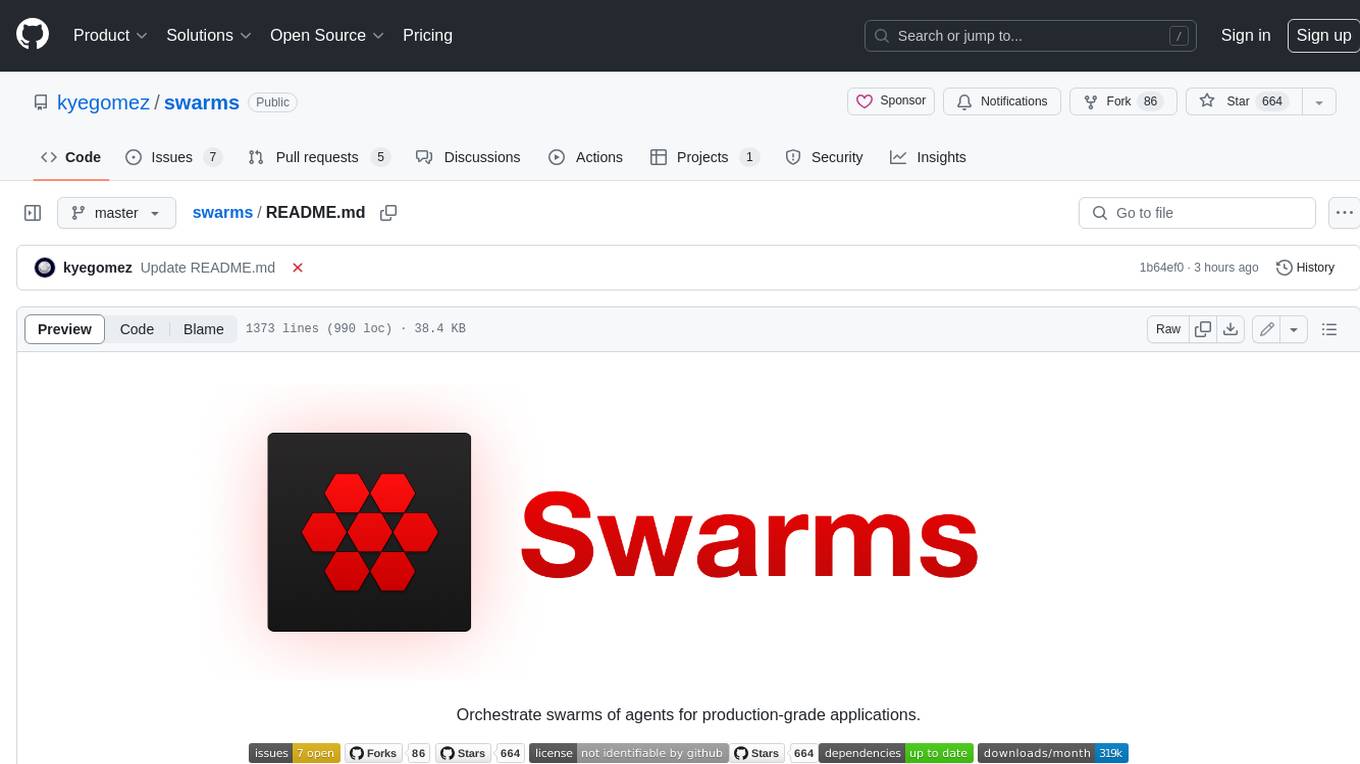
swarms
Swarms provides simple, reliable, and agile tools to create your own Swarm tailored to your specific needs. Currently, Swarms is being used in production by RBC, John Deere, and many AI startups.

OpenDAN-Personal-AI-OS
OpenDAN is an open source Personal AI OS that consolidates various AI modules for personal use. It empowers users to create powerful AI agents like assistants, tutors, and companions. The OS allows agents to collaborate, integrate with services, and control smart devices. OpenDAN offers features like rapid installation, AI agent customization, connectivity via Telegram/Email, building a local knowledge base, distributed AI computing, and more. It aims to simplify life by putting AI in users' hands. The project is in early stages with ongoing development and future plans for user and kernel mode separation, home IoT device control, and an official OpenDAN SDK release.

awesome-generative-information-retrieval
This repository contains a curated list of resources on generative information retrieval, including research papers, datasets, tools, and applications. Generative information retrieval is a subfield of information retrieval that uses generative models to generate new documents or passages of text that are relevant to a given query. This can be useful for a variety of tasks, such as question answering, summarization, and document generation. The resources in this repository are intended to help researchers and practitioners stay up-to-date on the latest advances in generative information retrieval.
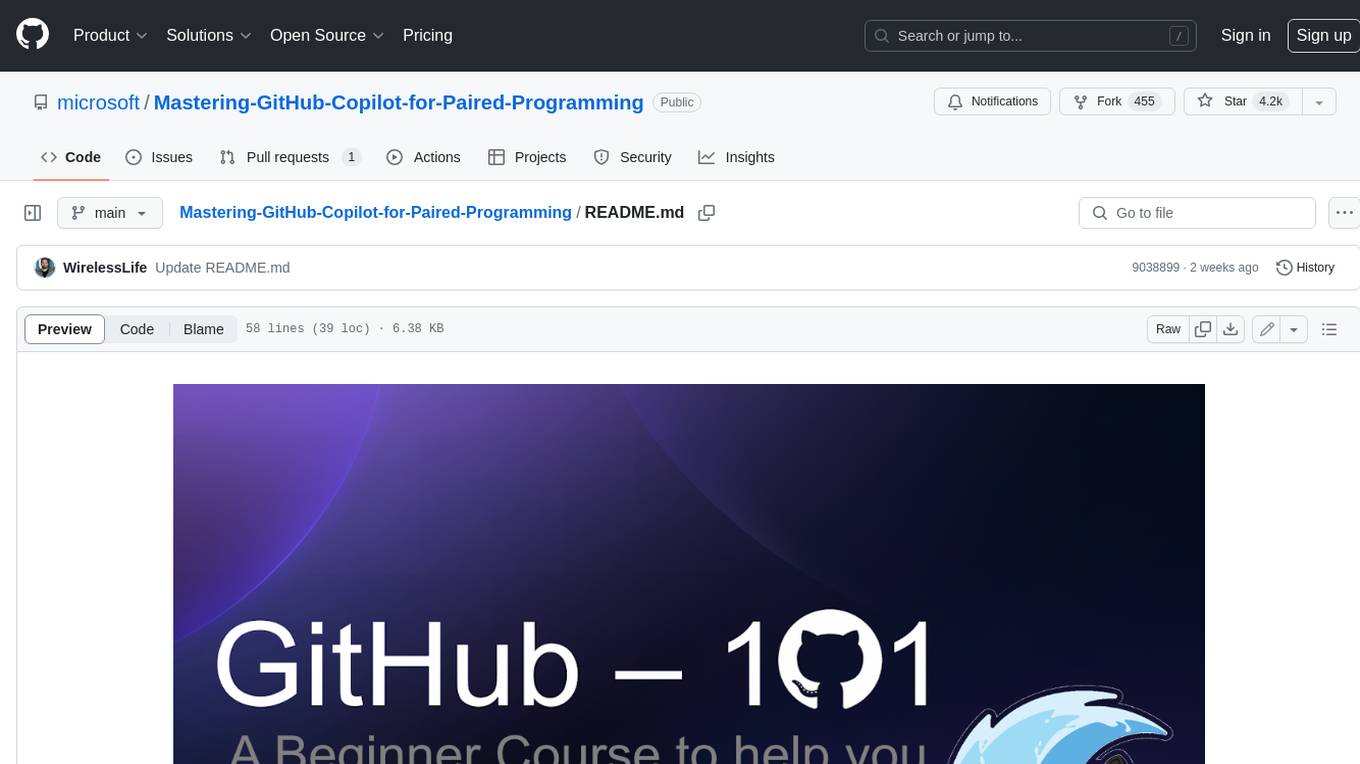
Mastering-GitHub-Copilot-for-Paired-Programming
Mastering GitHub Copilot for AI Paired Programming is a comprehensive course designed to equip you with the skills and knowledge necessary to harness the power of GitHub Copilot, an AI-driven coding assistant. Through a series of engaging lessons, you will learn how to seamlessly integrate GitHub Copilot into your workflow, leveraging its autocompletion, customizable features, and advanced programming techniques. This course is tailored to provide you with a deep understanding of AI-driven algorithms and best practices, enabling you to enhance code quality and accelerate your coding skills. By embracing the transformative power of AI paired programming, you will gain the tools and confidence needed to succeed in today's dynamic software development landscape.
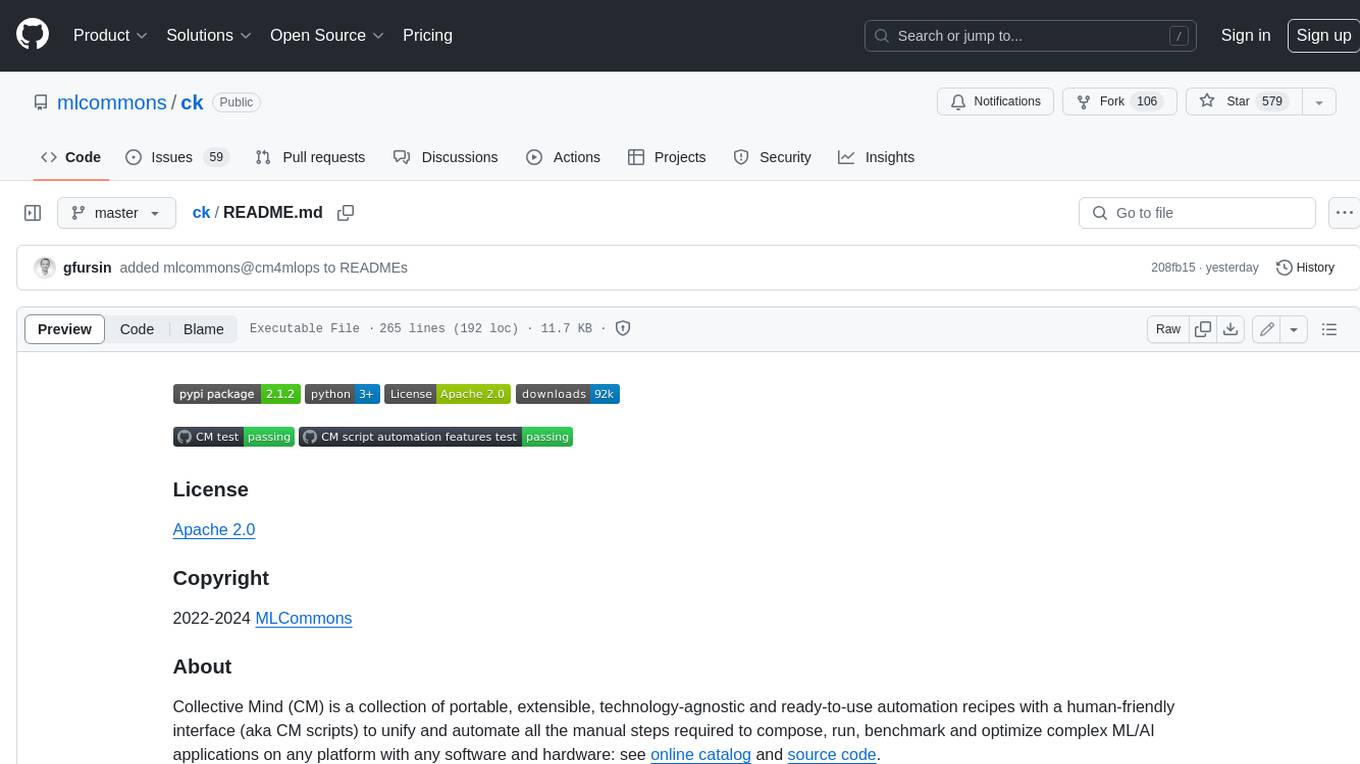
ck
Collective Mind (CM) is a collection of portable, extensible, technology-agnostic and ready-to-use automation recipes with a human-friendly interface (aka CM scripts) to unify and automate all the manual steps required to compose, run, benchmark and optimize complex ML/AI applications on any platform with any software and hardware: see online catalog and source code. CM scripts require Python 3.7+ with minimal dependencies and are continuously extended by the community and MLCommons members to run natively on Ubuntu, MacOS, Windows, RHEL, Debian, Amazon Linux and any other operating system, in a cloud or inside automatically generated containers while keeping backward compatibility - please don't hesitate to report encountered issues here and contact us via public Discord Server to help this collaborative engineering effort! CM scripts were originally developed based on the following requirements from the MLCommons members to help them automatically compose and optimize complex MLPerf benchmarks, applications and systems across diverse and continuously changing models, data sets, software and hardware from Nvidia, Intel, AMD, Google, Qualcomm, Amazon and other vendors: * must work out of the box with the default options and without the need to edit some paths, environment variables and configuration files; * must be non-intrusive, easy to debug and must reuse existing user scripts and automation tools (such as cmake, make, ML workflows, python poetry and containers) rather than substituting them; * must have a very simple and human-friendly command line with a Python API and minimal dependencies; * must require minimal or zero learning curve by using plain Python, native scripts, environment variables and simple JSON/YAML descriptions instead of inventing new workflow languages; * must have the same interface to run all automations natively, in a cloud or inside containers. CM scripts were successfully validated by MLCommons to modularize MLPerf inference benchmarks and help the community automate more than 95% of all performance and power submissions in the v3.1 round across more than 120 system configurations (models, frameworks, hardware) while reducing development and maintenance costs.
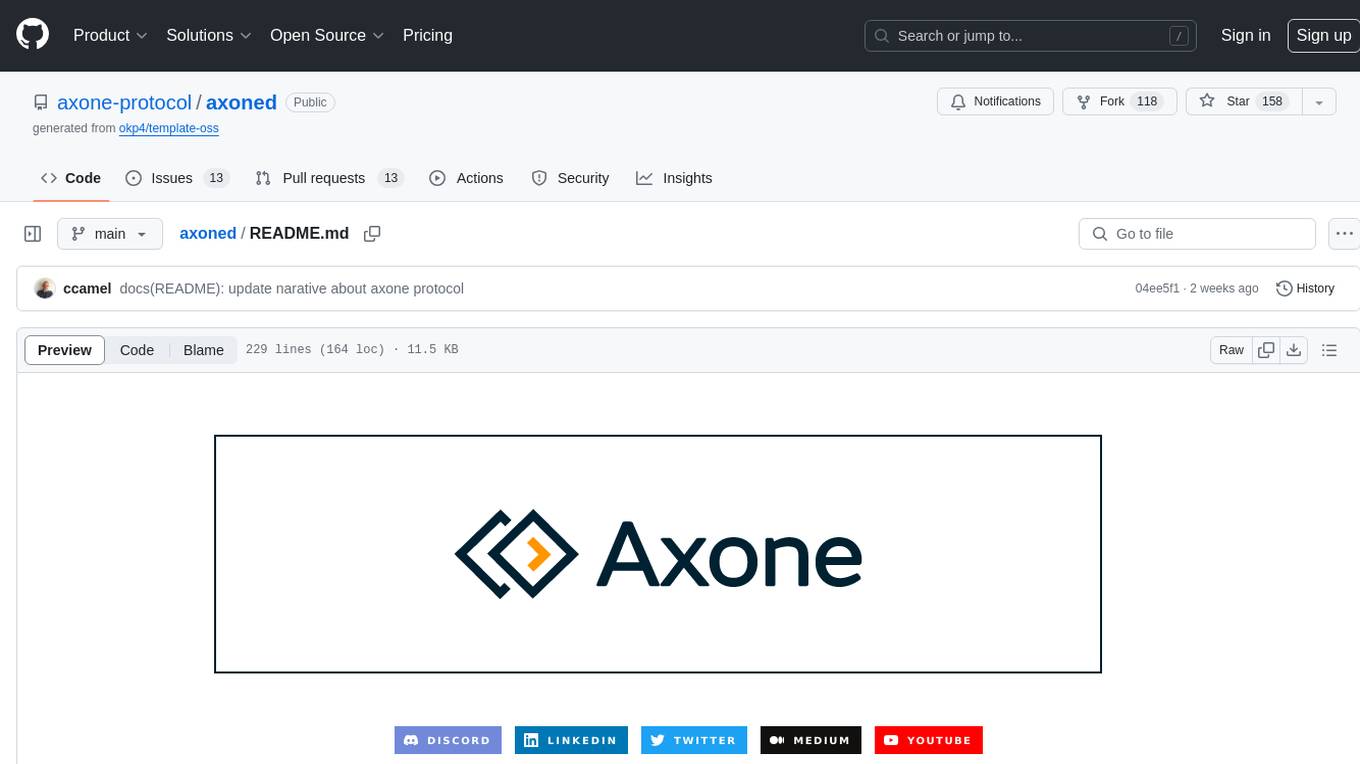
axoned
Axone is a public dPoS layer 1 designed for connecting, sharing, and monetizing resources in the AI stack. It is an open network for collaborative AI workflow management compatible with any data, model, or infrastructure, allowing sharing of data, algorithms, storage, compute, APIs, both on-chain and off-chain. The 'axoned' node of the AXONE network is built on Cosmos SDK & Tendermint consensus, enabling companies & individuals to define on-chain rules, share off-chain resources, and create new applications. Validators secure the network by maintaining uptime and staking $AXONE for rewards. The blockchain supports various platforms and follows Semantic Versioning 2.0.0. A docker image is available for quick start, with documentation on querying networks, creating wallets, starting nodes, and joining networks. Development involves Go and Cosmos SDK, with smart contracts deployed on the AXONE blockchain. The project provides a Makefile for building, installing, linting, and testing. Community involvement is encouraged through Discord, open issues, and pull requests.

airflow
Apache Airflow (or simply Airflow) is a platform to programmatically author, schedule, and monitor workflows. When workflows are defined as code, they become more maintainable, versionable, testable, and collaborative. Use Airflow to author workflows as directed acyclic graphs (DAGs) of tasks. The Airflow scheduler executes your tasks on an array of workers while following the specified dependencies. Rich command line utilities make performing complex surgeries on DAGs a snap. The rich user interface makes it easy to visualize pipelines running in production, monitor progress, and troubleshoot issues when needed.
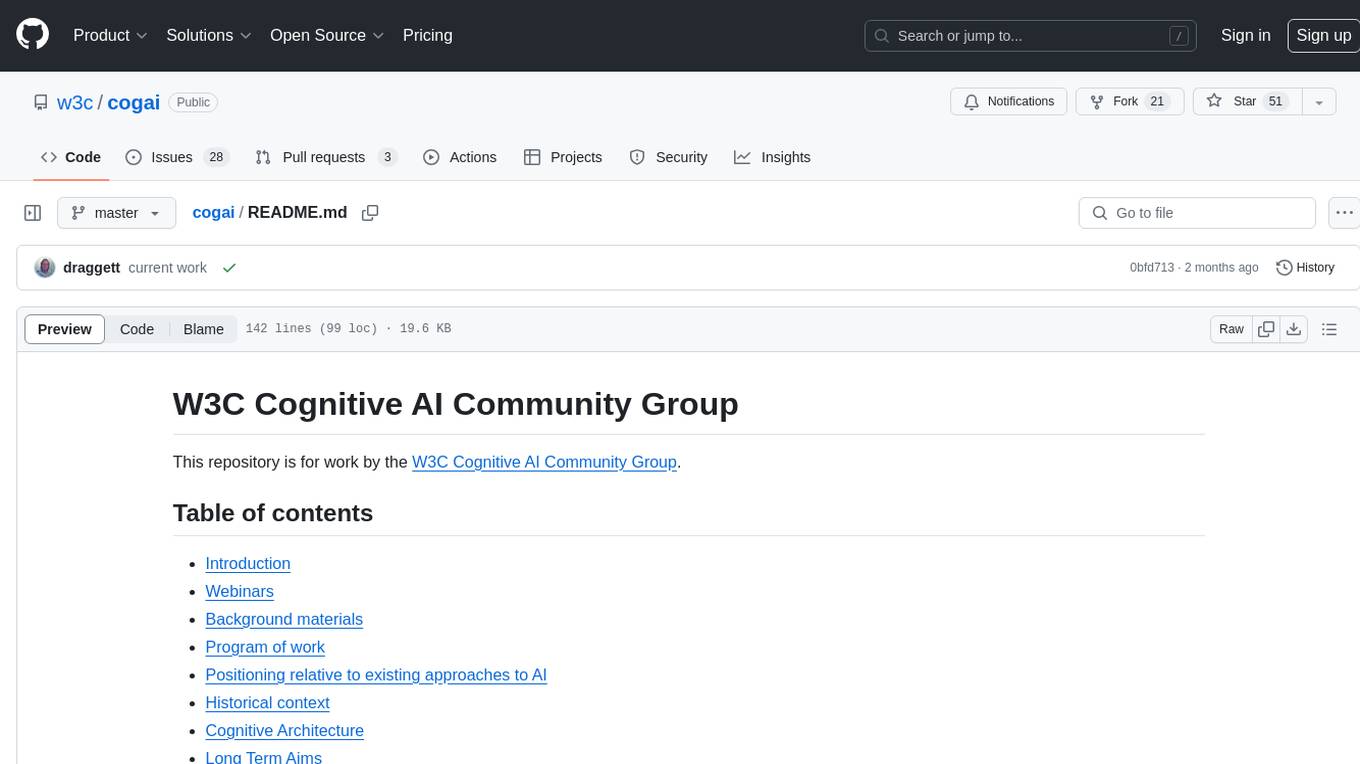
cogai
The W3C Cognitive AI Community Group focuses on advancing Cognitive AI through collaboration on defining use cases, open source implementations, and application areas. The group aims to demonstrate the potential of Cognitive AI in various domains such as customer services, healthcare, cybersecurity, online learning, autonomous vehicles, manufacturing, and web search. They work on formal specifications for chunk data and rules, plausible knowledge notation, and neural networks for human-like AI. The group positions Cognitive AI as a combination of symbolic and statistical approaches inspired by human thought processes. They address research challenges including mimicry, emotional intelligence, natural language processing, and common sense reasoning. The long-term goal is to develop cognitive agents that are knowledgeable, creative, collaborative, empathic, and multilingual, capable of continual learning and self-awareness.
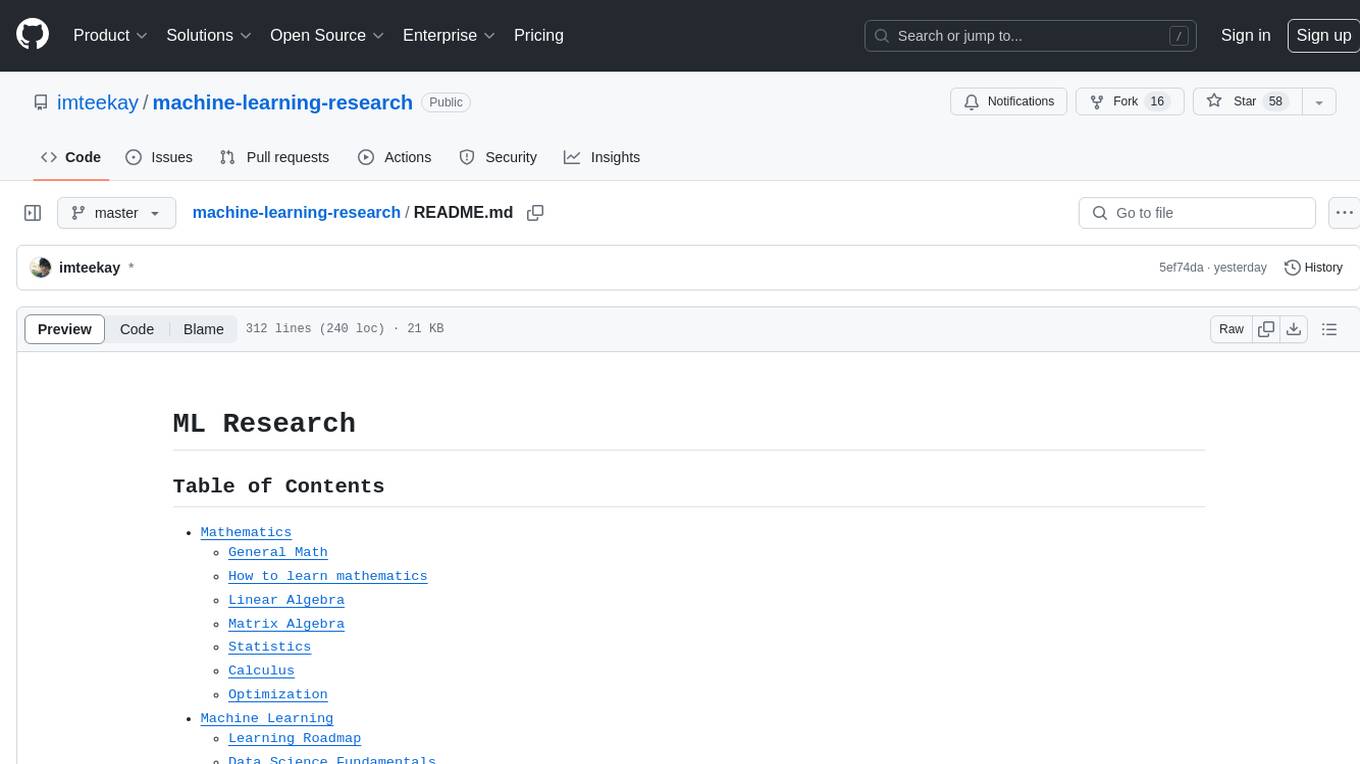
machine-learning-research
The 'machine-learning-research' repository is a comprehensive collection of resources related to mathematics, machine learning, deep learning, artificial intelligence, data science, and various scientific fields. It includes materials such as courses, tutorials, books, podcasts, communities, online courses, papers, and dissertations. The repository covers topics ranging from fundamental math skills to advanced machine learning concepts, with a focus on applications in healthcare, genetics, computational biology, precision health, and AI in science. It serves as a valuable resource for individuals interested in learning and researching in the fields of machine learning and related disciplines.
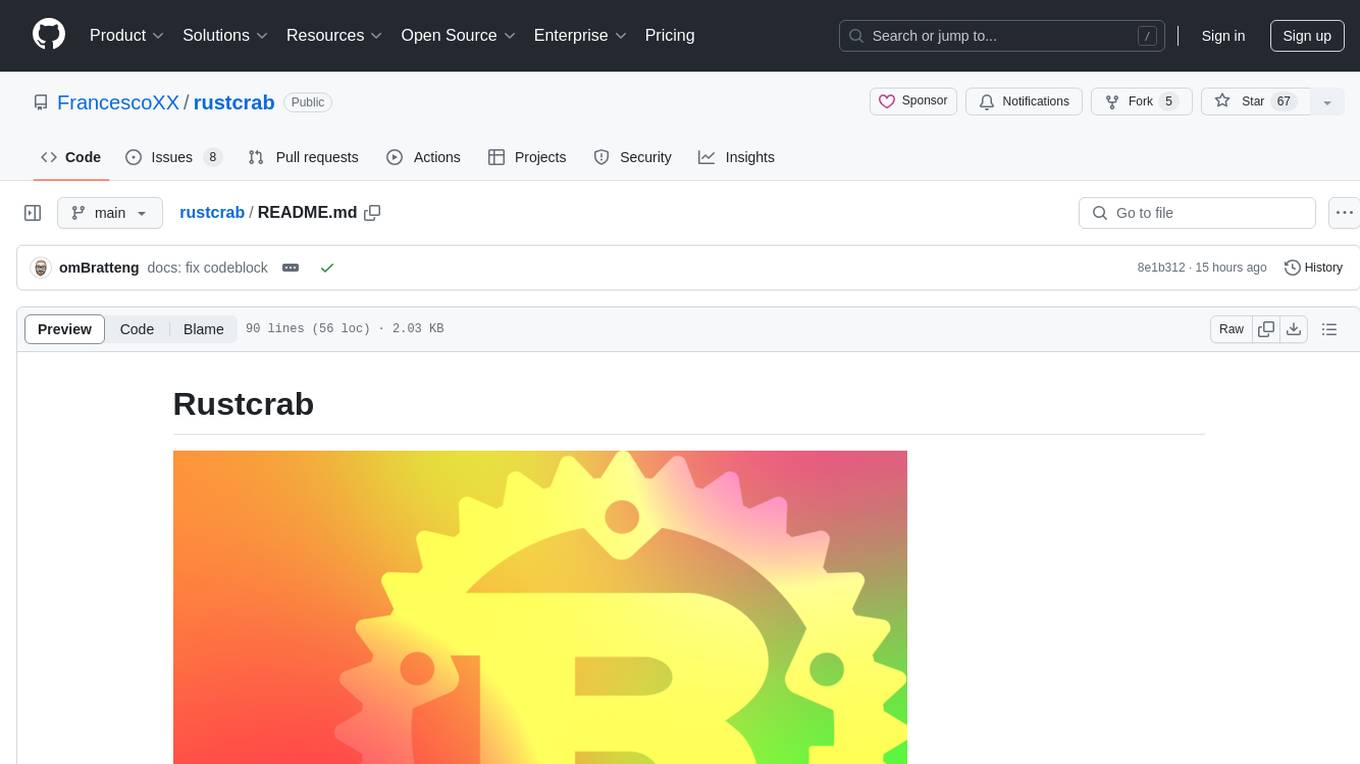
rustcrab
Rustcrab is a repository for Rust developers, offering resources, tools, and guides to enhance Rust programming skills. It is a Next.js application with Tailwind CSS and TypeScript, featuring real-time display of GitHub stars, light/dark mode toggling, integration with daily.dev, and social media links. Users can clone the repository, install dependencies, run the development server, build for production, and deploy to various platforms. Contributions are encouraged through opening issues or submitting pull requests.
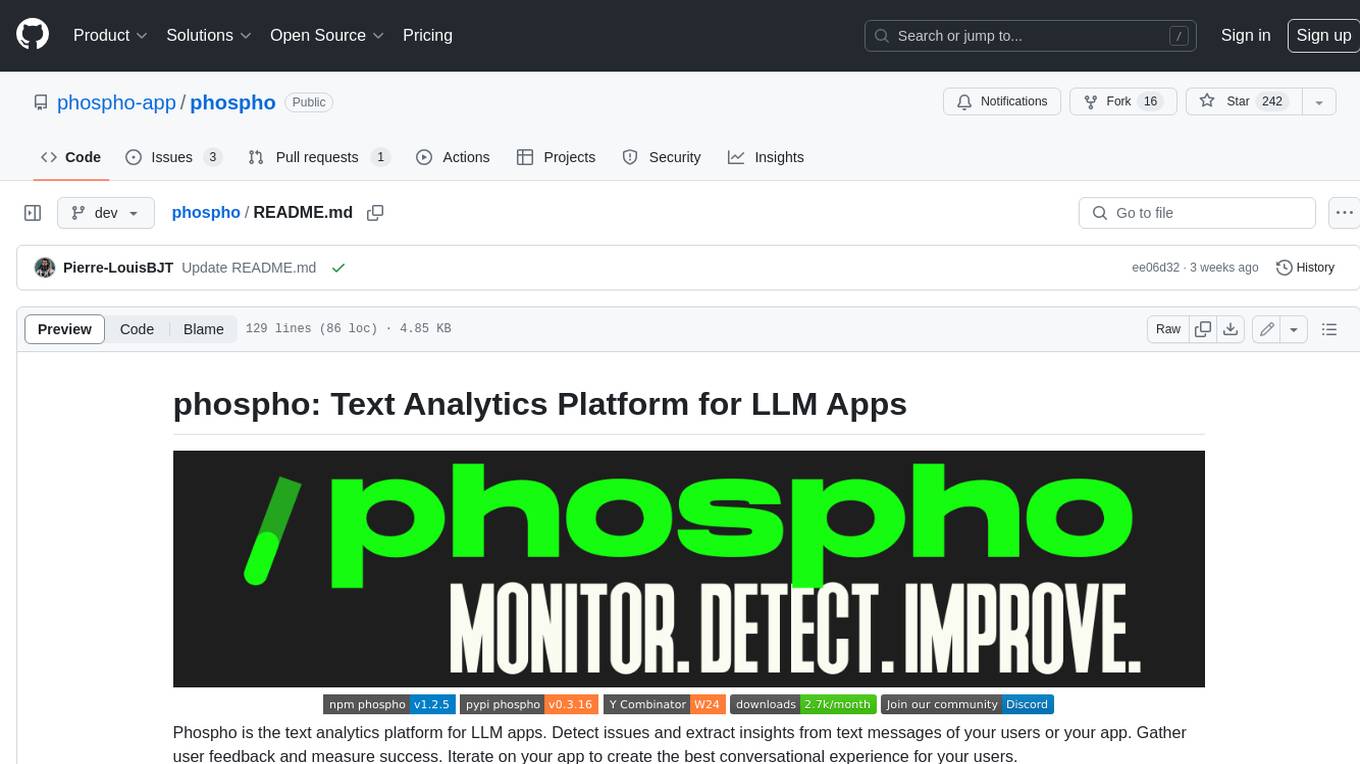
phospho
Phospho is a text analytics platform for LLM apps. It helps you detect issues and extract insights from text messages of your users or your app. You can gather user feedback, measure success, and iterate on your app to create the best conversational experience for your users.
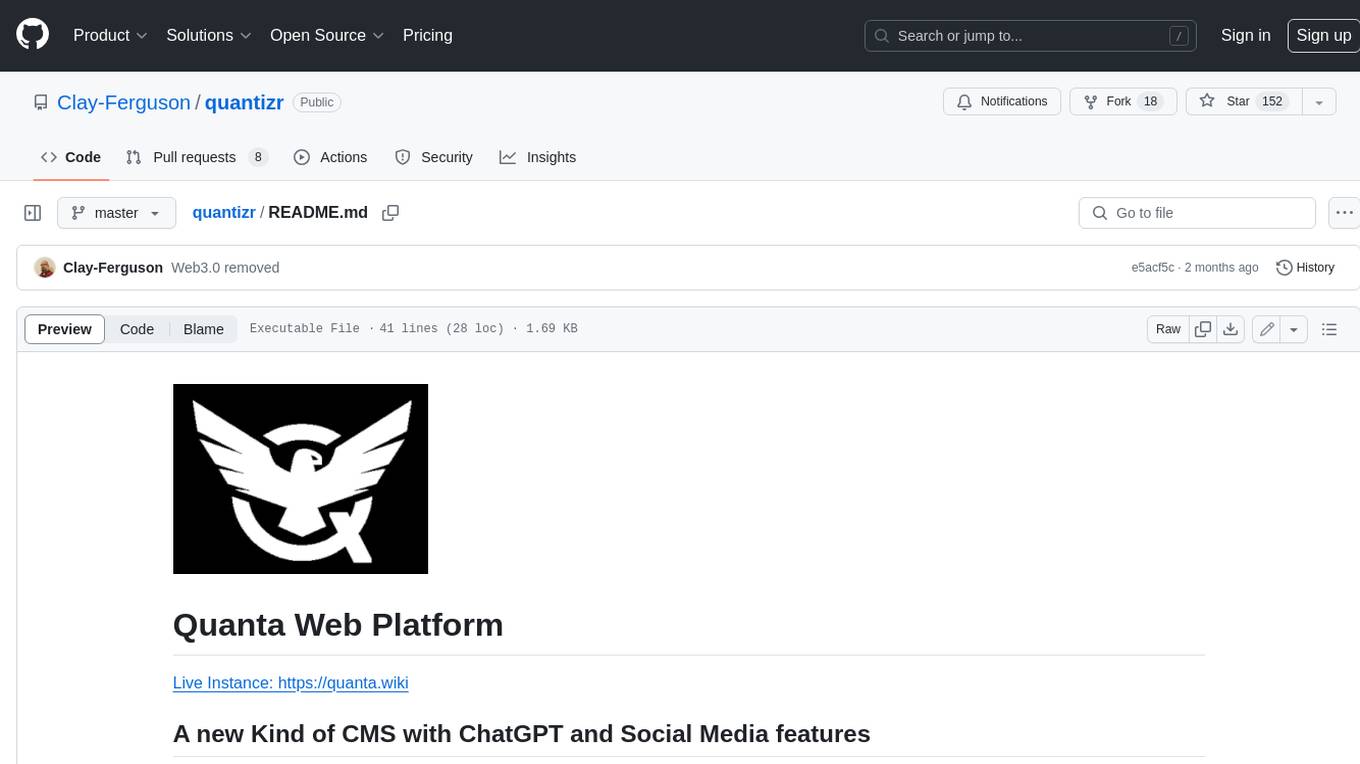
quantizr
Quanta is a new kind of Content Management platform, with powerful features including: Wikis & micro-blogging, ChatGPT Question Answering, Document collaboration and publishing, PDF Generation, Secure messaging with (E2E Encryption), Video/audio recording & sharing, File sharing, Podcatcher (RSS Reader), and many other features related to managing hierarchical content.
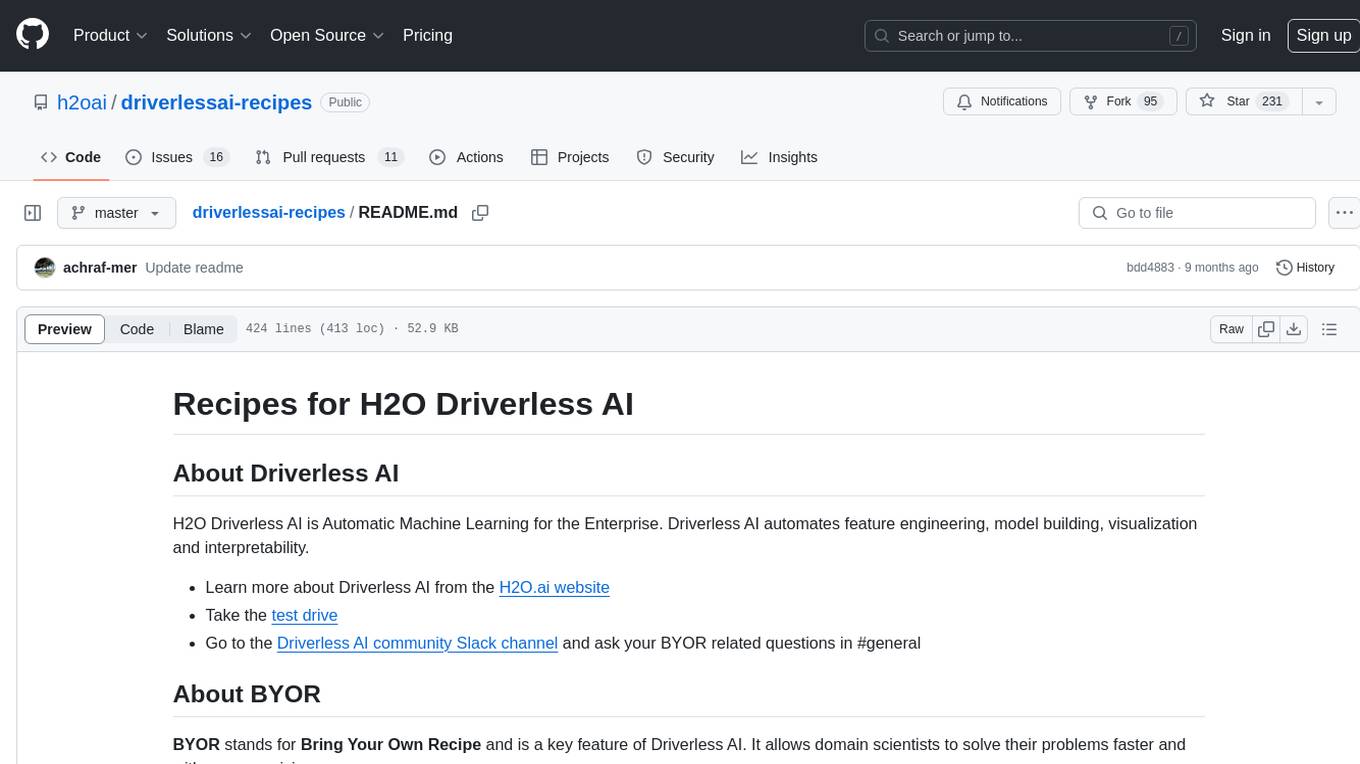
driverlessai-recipes
This repository contains custom recipes for H2O Driverless AI, which is an Automatic Machine Learning platform for the Enterprise. Custom recipes are Python code snippets that can be uploaded into Driverless AI at runtime to automate feature engineering, model building, visualization, and interpretability. Users can gain control over the optimization choices made by Driverless AI by providing their own custom recipes. The repository includes recipes for various tasks such as data manipulation, data preprocessing, feature selection, data augmentation, model building, scoring, and more. Best practices for creating and using recipes are also provided, including security considerations, performance tips, and safety measures.
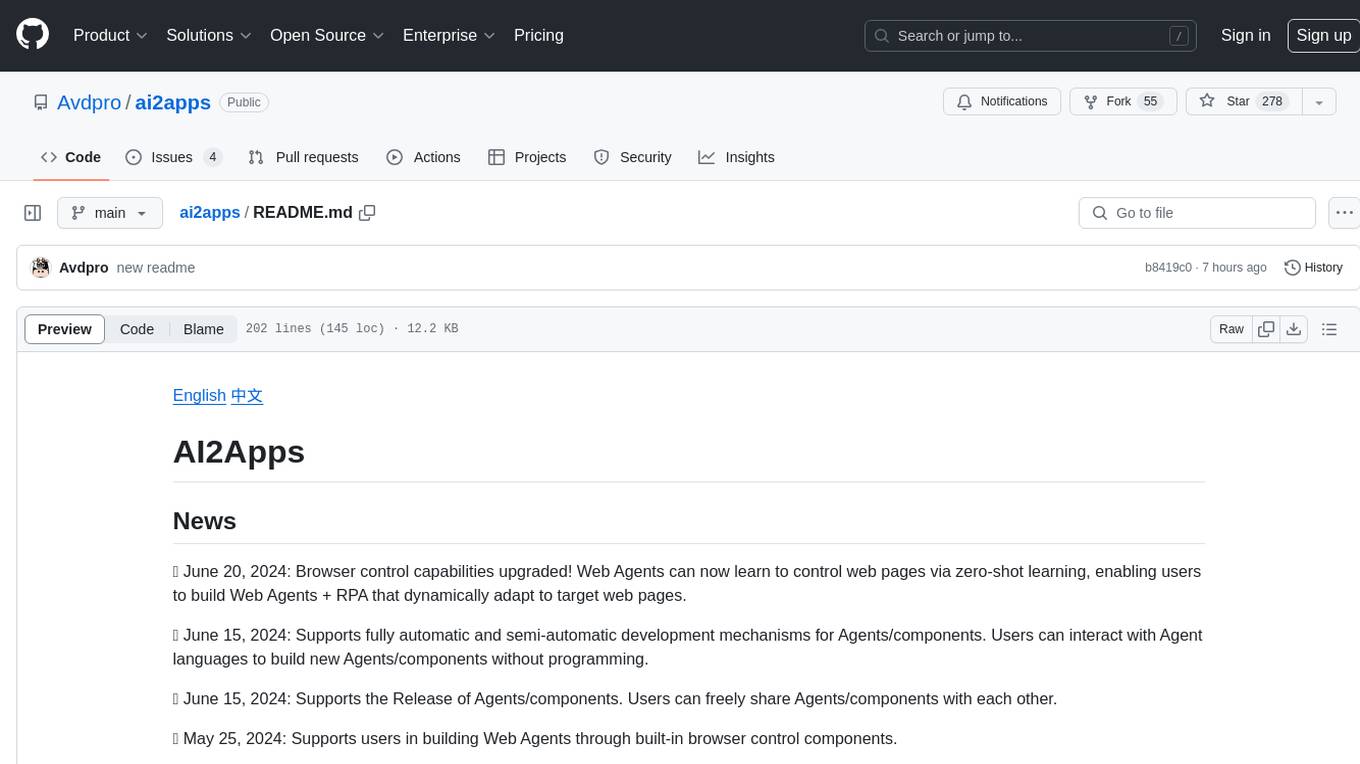
ai2apps
AI2Apps is a visual IDE for building LLM-based AI agent applications, enabling developers to efficiently create AI agents through drag-and-drop, with features like design-to-development for rapid prototyping, direct packaging of agents into apps, powerful debugging capabilities, enhanced user interaction, efficient team collaboration, flexible deployment, multilingual support, simplified product maintenance, and extensibility through plugins.
20 - OpenAI Gpts
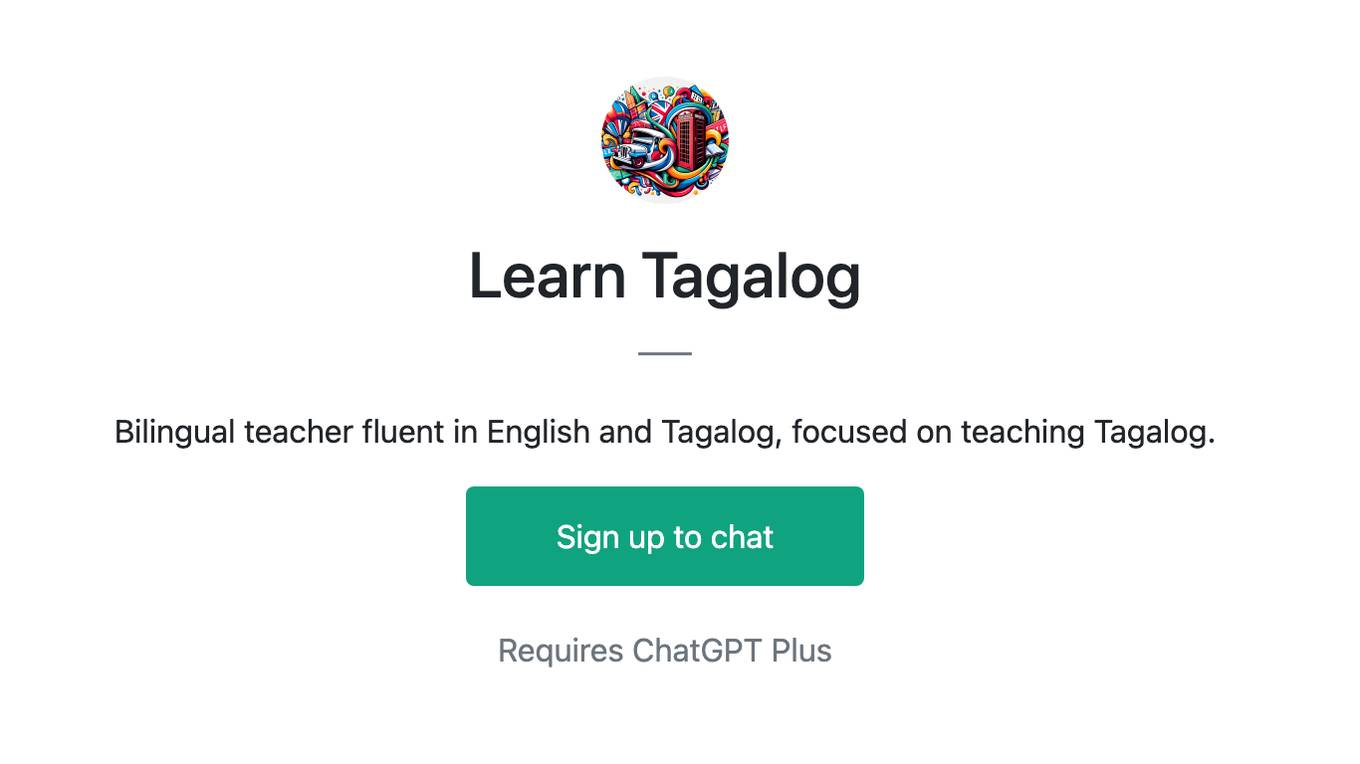
Learn Tagalog
Bilingual teacher fluent in English and Tagalog, focused on teaching Tagalog.
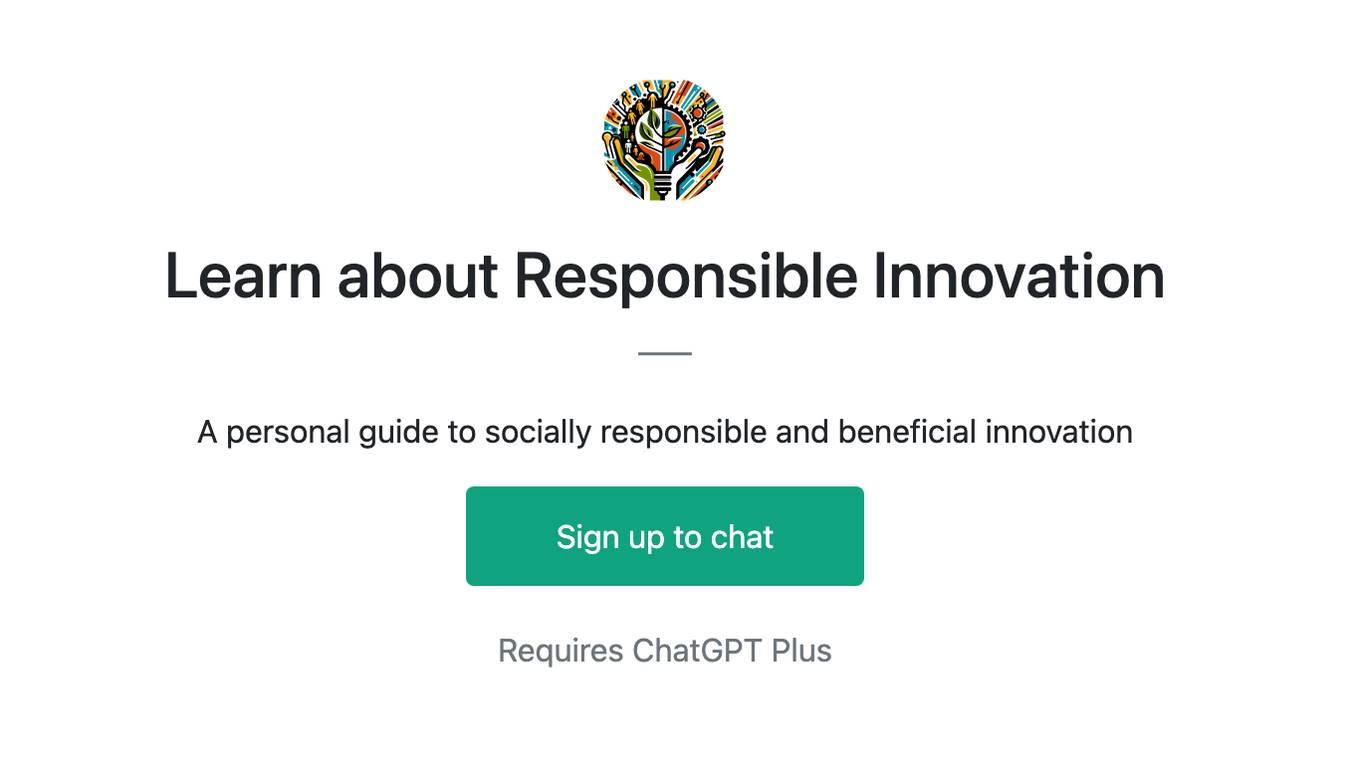
Learn about Responsible Innovation
A personal guide to socially responsible and beneficial innovation
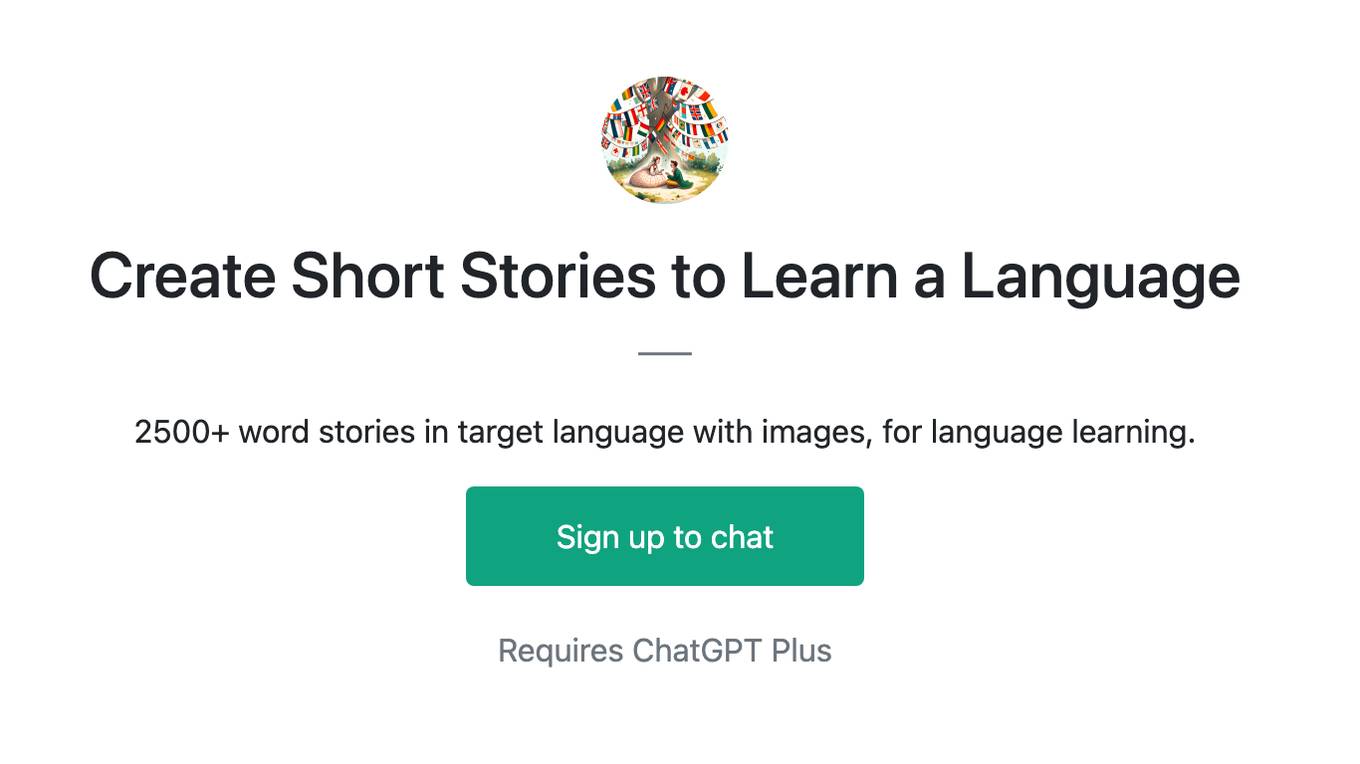
Create Short Stories to Learn a Language
2500+ word stories in target language with images, for language learning.
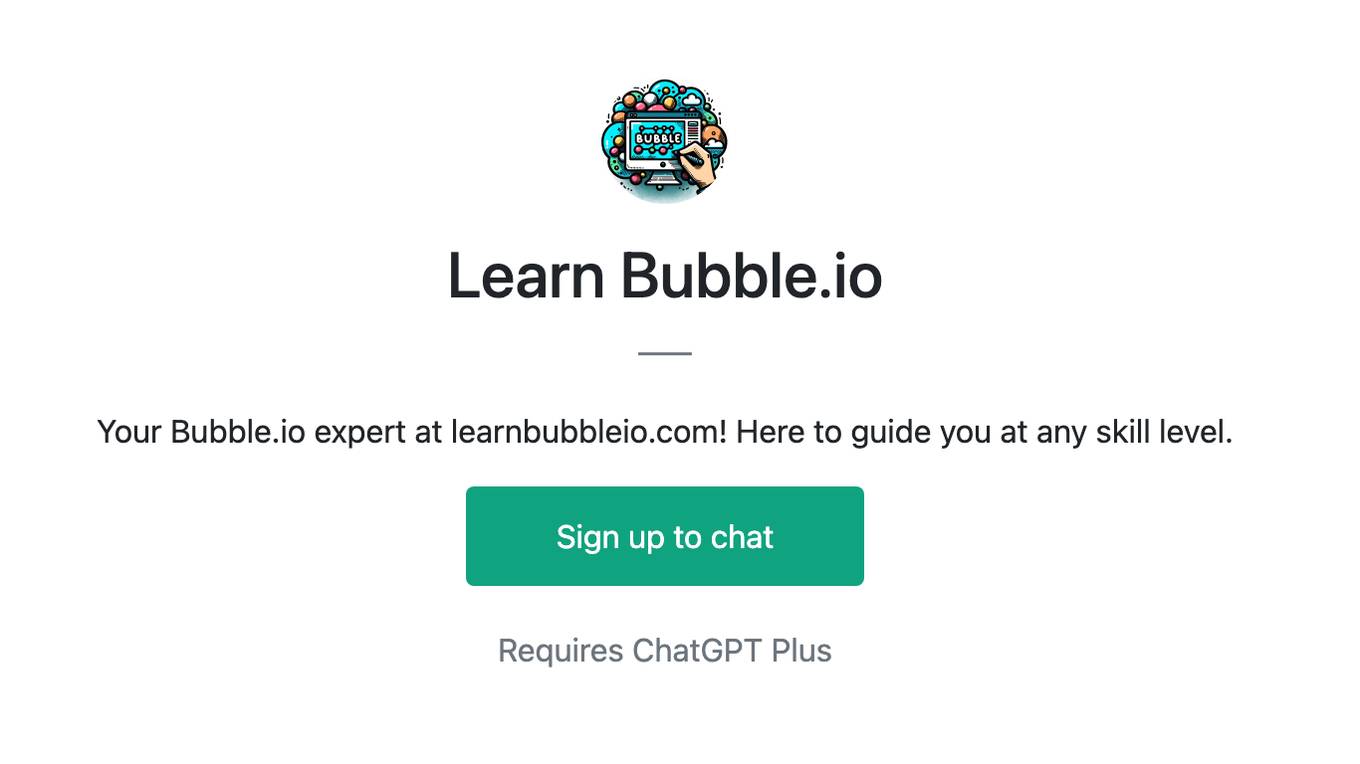
Learn Bubble.io
Your Bubble.io expert at learnbubbleio.com! Here to guide you at any skill level.

Learn Hebrew
Learn Hebrew Via Flashcards. We will show you a word, phrase or sentence and you will have to translate so we know if you understand or not.
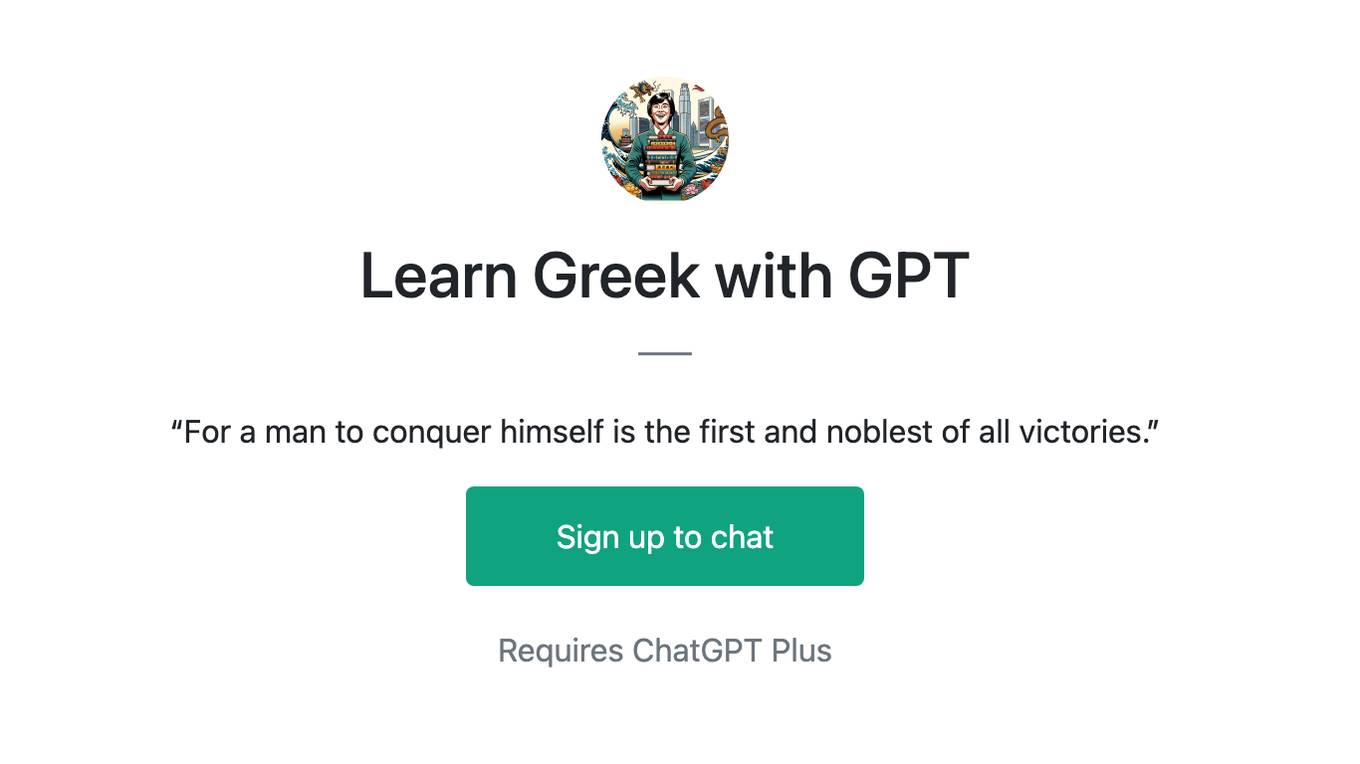
Learn Greek with GPT
“For a man to conquer himself is the first and noblest of all victories.”
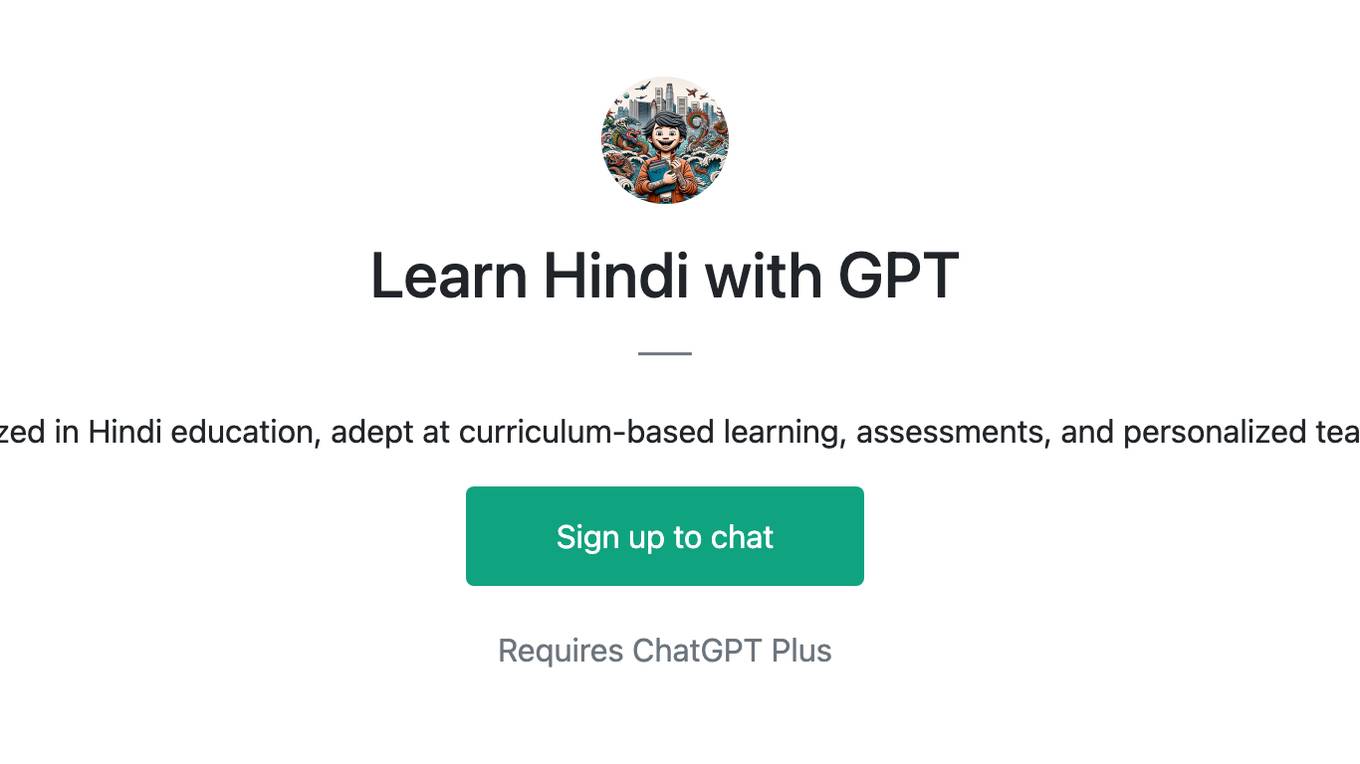
Learn Hindi with GPT
Specialized in Hindi education, adept at curriculum-based learning, assessments, and personalized teaching.
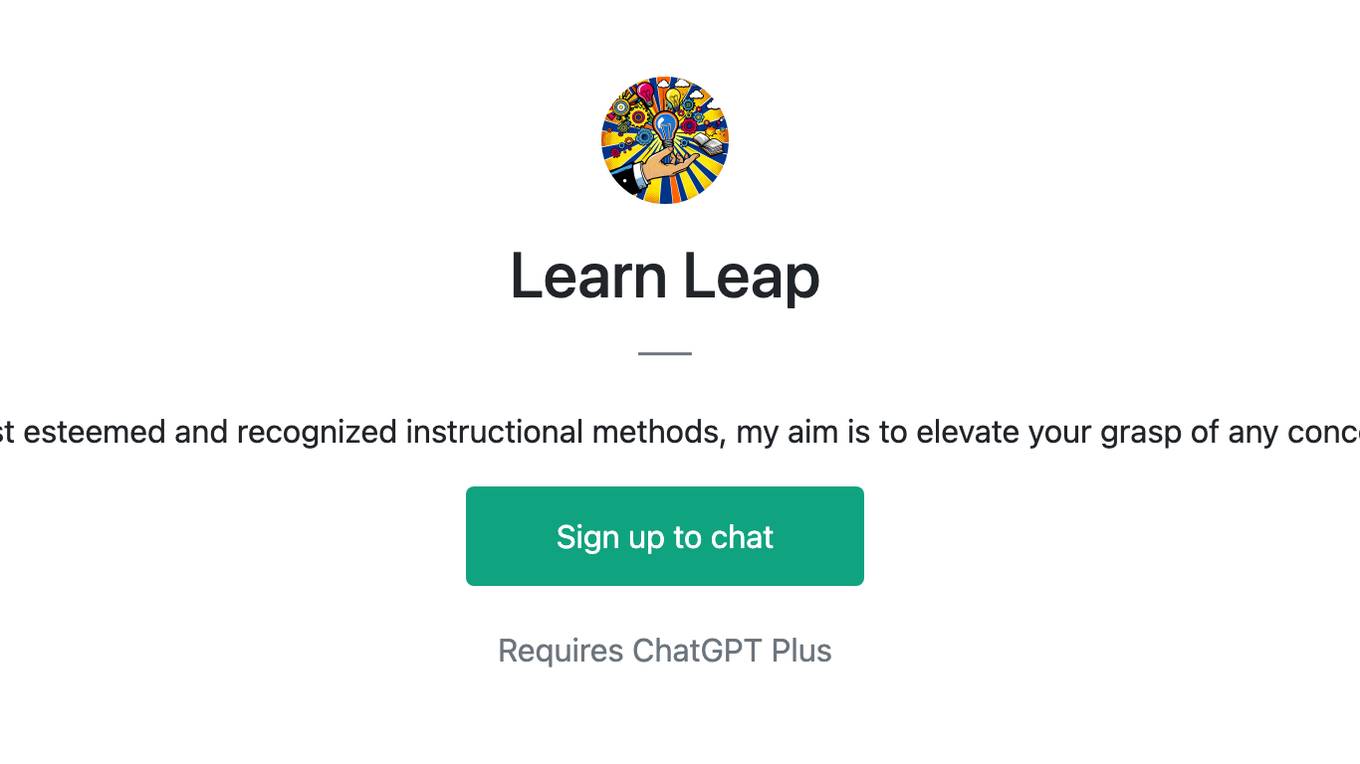
Learn Leap
Leveraging some of the most esteemed and recognized instructional methods, my aim is to elevate your grasp of any concepts you're curious about!
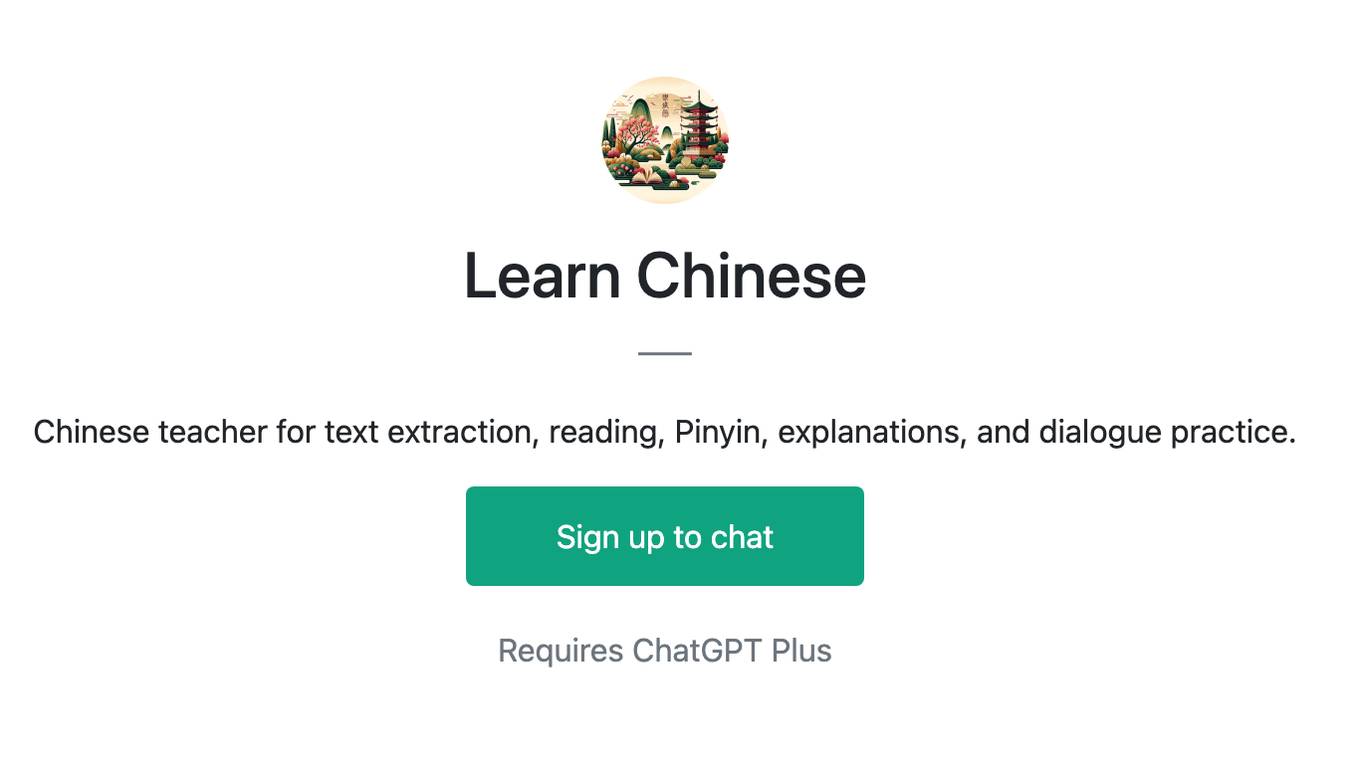
Learn Chinese
Chinese teacher for text extraction, reading, Pinyin, explanations, and dialogue practice.
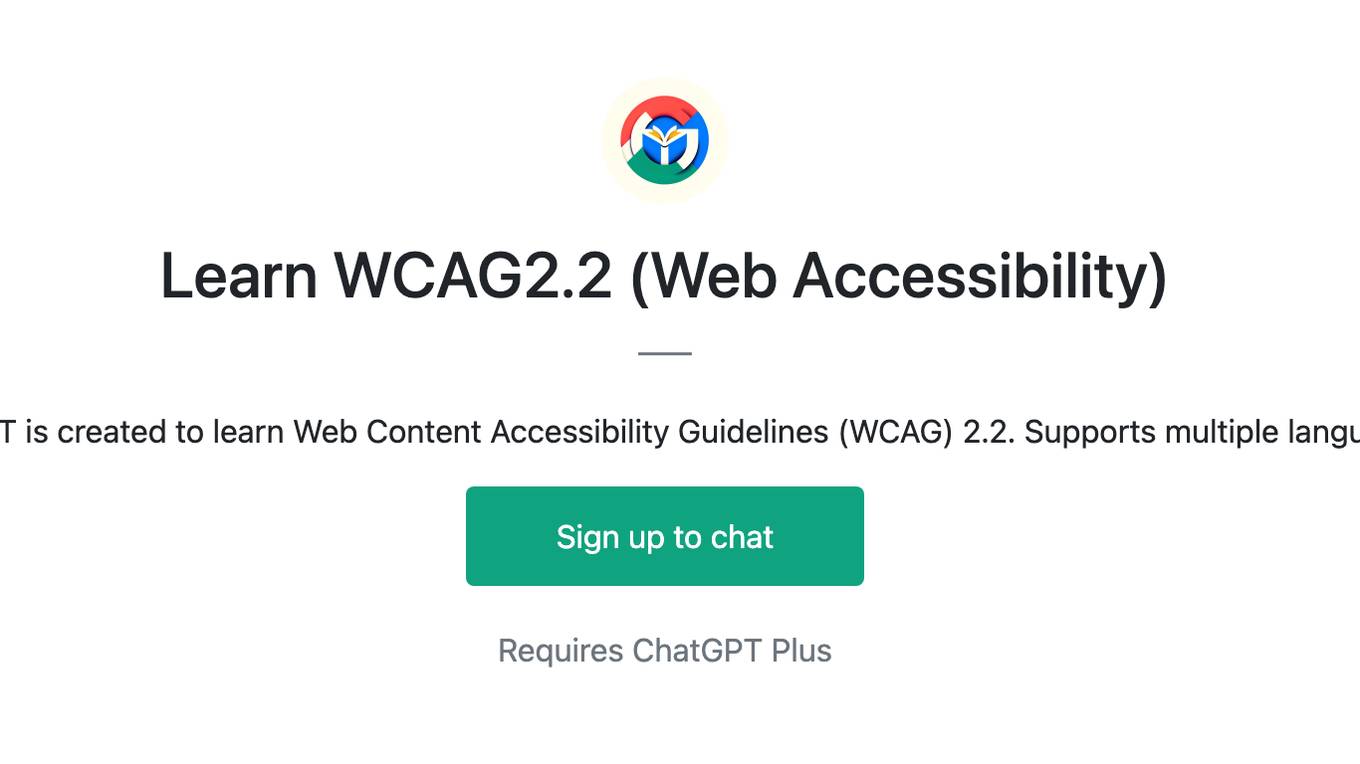
Learn WCAG2.2 (Web Accessibility)
This GPT is created to learn Web Content Accessibility Guidelines (WCAG) 2.2. Supports multiple languages.
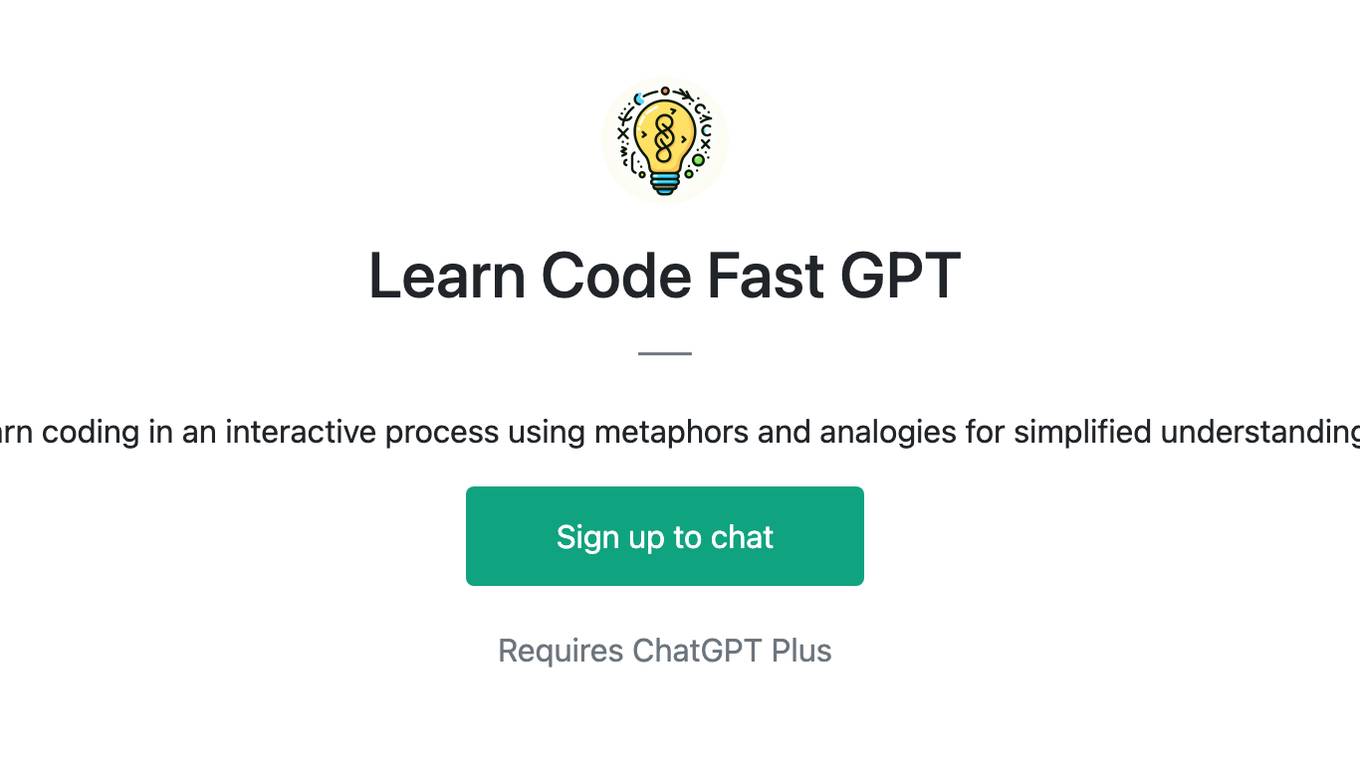
Learn Code Fast GPT
Learn coding in an interactive process using metaphors and analogies for simplified understanding.
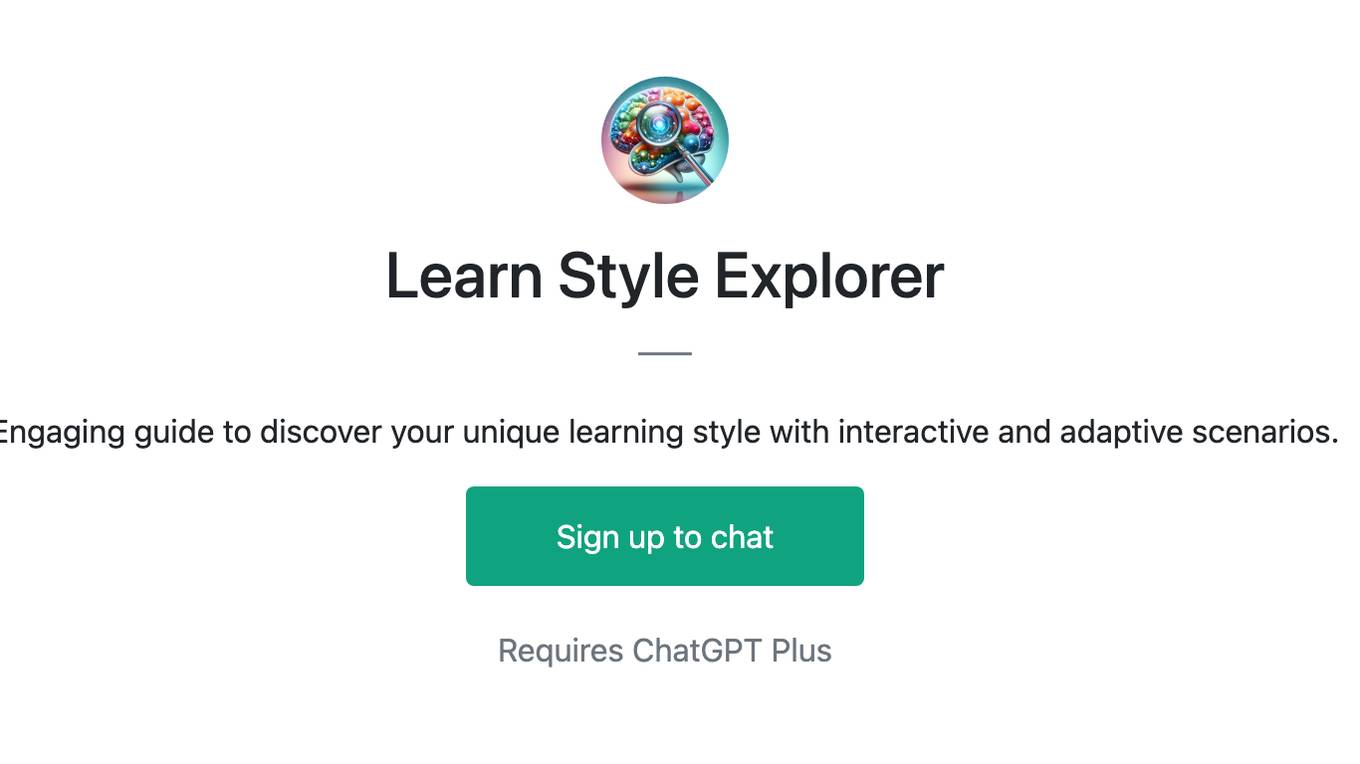
Learn Style Explorer
Engaging guide to discover your unique learning style with interactive and adaptive scenarios.

